



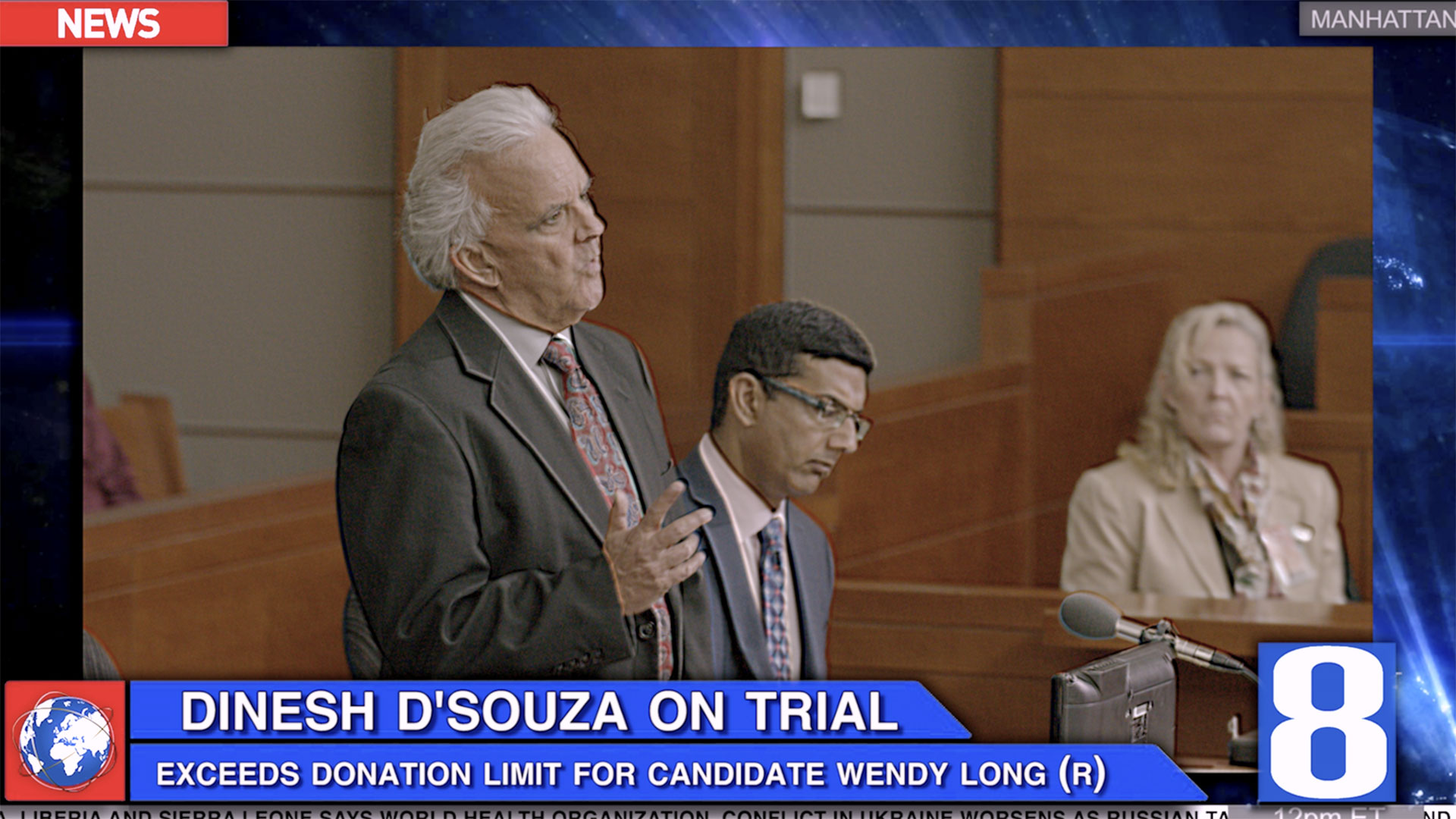
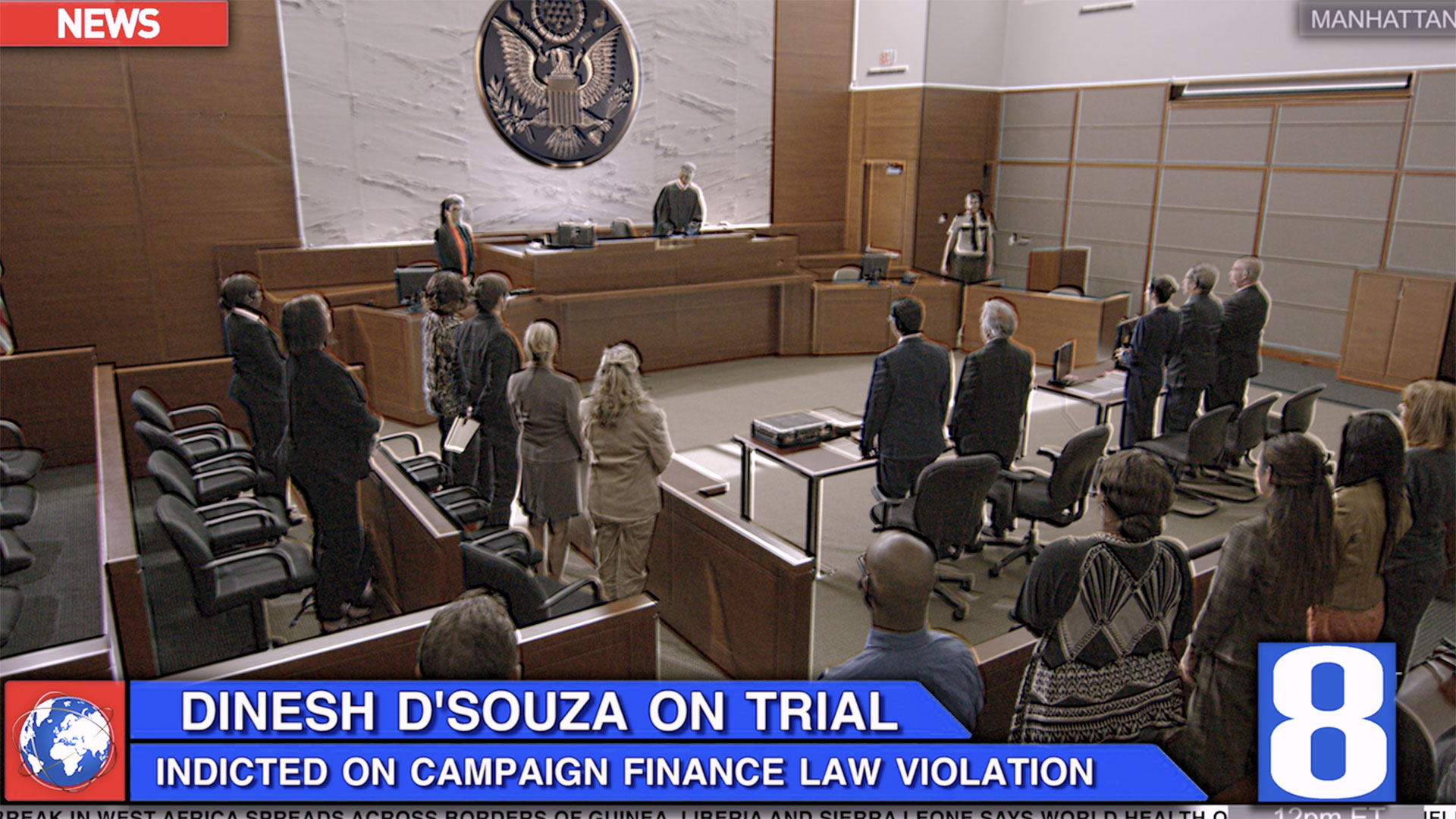
"In a very short time I'd know if I was headed to federal prison. My crime? I had exceeded the campaign finance laws by convincing two of my friends to contribute $10,000 apiece to a candidate for the U.S. Senate from New York; then I reimbursed them for their contribution."
"'United States versus Dinesh D'Souza'… 'Please stand for Judge Berman'….The judge insisted I had 'willfully and knowingly' violated the law. He added, 'Mr. D'Souza's crime is serious.' One of the purposes of punishment, he suggested, is to discourage others from committing similar violations. 'The public certainly needs to be deterred…from making phony contributions and violating the election laws.'"
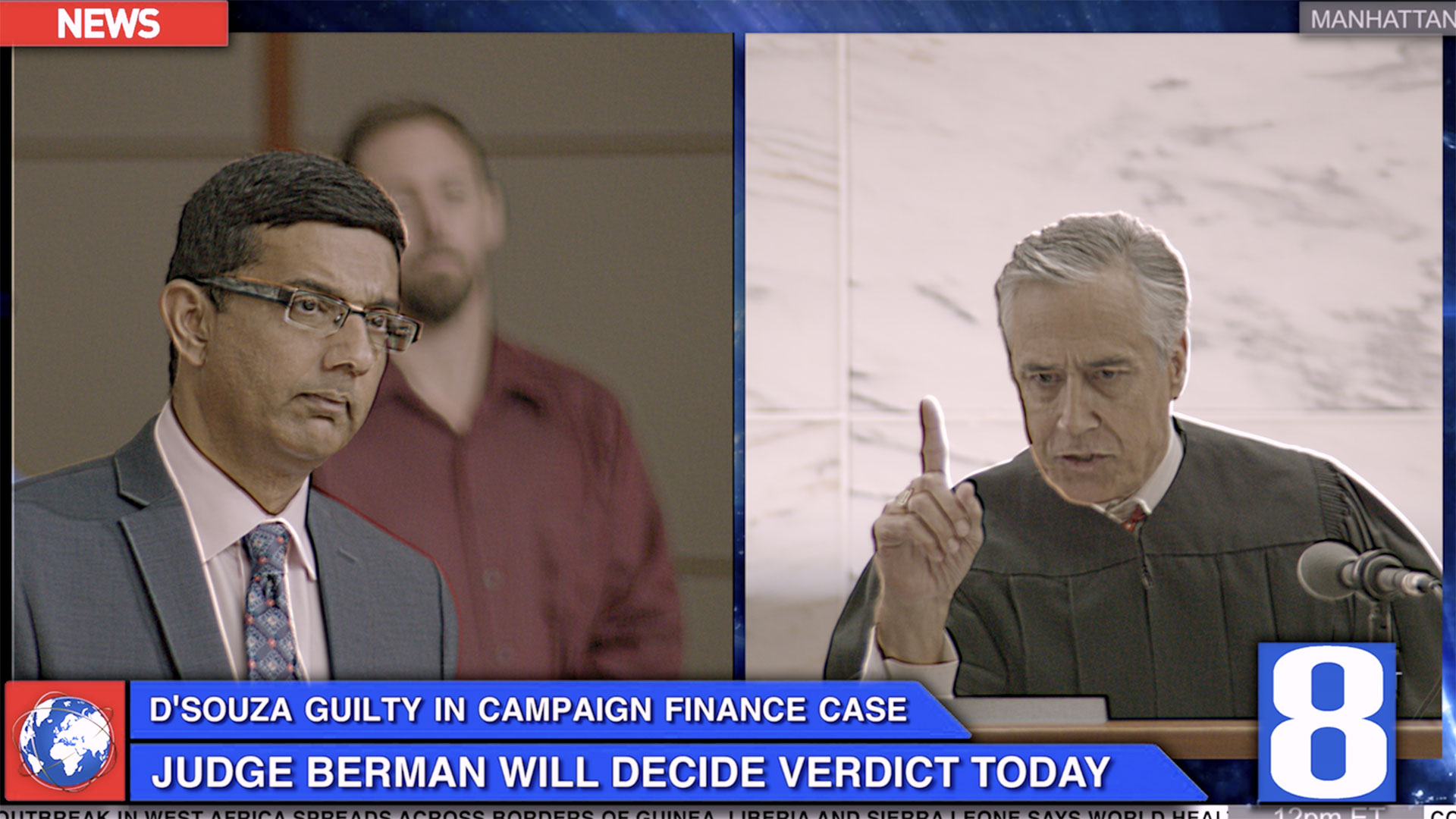
"I confessed [to Brafman] I had infuriated the most powerful man in the world, the man at the head of a formidable empire, and I guess this might be a case of the empire striking back….Here I was, a conspicuous public critic of the Obama administration, giving Obama and his minions in the Justice Department just what they needed: a pretext to go after me."
"I was given eight months of overnight confinement in a halfway house. I had to do one week of community service teaching English to new immigrants, as well as one hour of psychological counseling. I had to pay a $30,000 fine. I also got five years probation."

"'White-collar prison,' [Oscar] said, 'is full of doctors, dentists, business guys, even one or two mayors or city officials. These are people who didn't pay their taxes, or cheated Medicare, or did insider trading, stuff like that.'….'And here?' I said. 'What about here, in the confinement center?' 'This is different, man. These guys here have done it all. Murder, rape, armed robbery, drug smuggling across the border. You name it, we have it.'"
"He asked me to tell him about my offense, and I tried to, but he seemed uncomprehending. 'You gave too much money….Then – you did what?' 'Nothing.' 'Come on, man. You shot someone, you paid someone off?'"

"Criminals are not absorbed with the world as it ought to be. They are more concerned with the world as it is. And this gives them a singular focus, a realism, that is often lacking among members of the journalistic and political class."
"'Of all the gangs,' [Ramon] said, 'the FBI is by far the scariest, man.'….'That's what they are, man, a gang, just like the Crips and the Bloods. They got gang uniforms, they got passwords, and they got the best weapons of any gang in the world. They know it, and we know it, and we all relate to each other on that basis.'"
"Now I see that the ideological convictions of Obama, Hillary, and the progressives largely spring out of those base motives and that irrepressible will to power. The progressives have unleashed a massive scheme for looting the national treasury and transferring wealth and power to themselves, and their ideology of fairness and equality is to a large degree a justification – a sales pitch – to facilitate that larceny….By seeing the world through their eyes, I widened my own angle of vision. Their subculture gave me insights into the larger culture. And this book is an attempt to trace the contours of that wider moral and political landscape on which most people sleepily dwell."

"Abraham Lincoln expressed the essence of slavery when he said it expressed the maxim, 'You work, I eat.'"
"This is not to say that progressives intend to seize all that wealth, but they do want to control it. Progressives generally can't create wealth, so they seek to take it over once it has been created by someone else. They do this through various agencies of government, such as the IRS, the FBI, the EPA, the FCC, the FDA, the BLM, and the HHS."
"The methodology of theft is very simple and involves five distinct steps. First, plan the theft. Second, recruit allies. Third, pitch or justify the theft. Fourth, carry out the theft. And finally, cover up the theft."
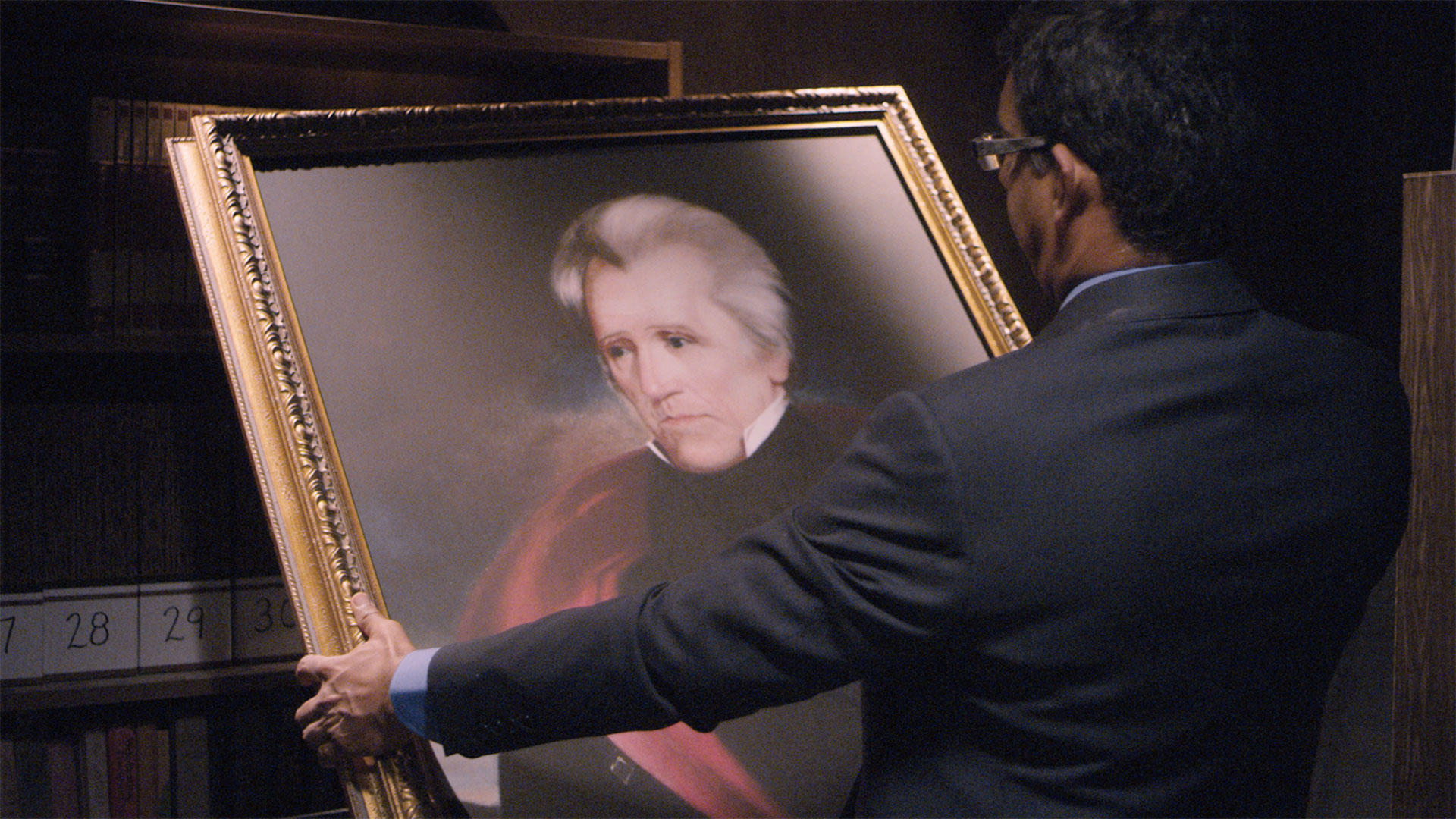

Treaty of Dancing Rabbit Creek
Treaty of Cusseta
Treaty of Payne's Lanind
Treaty of New Echota
Treaty between the U.S. and Chippewa, Ottowa, and Potawatamie Indians
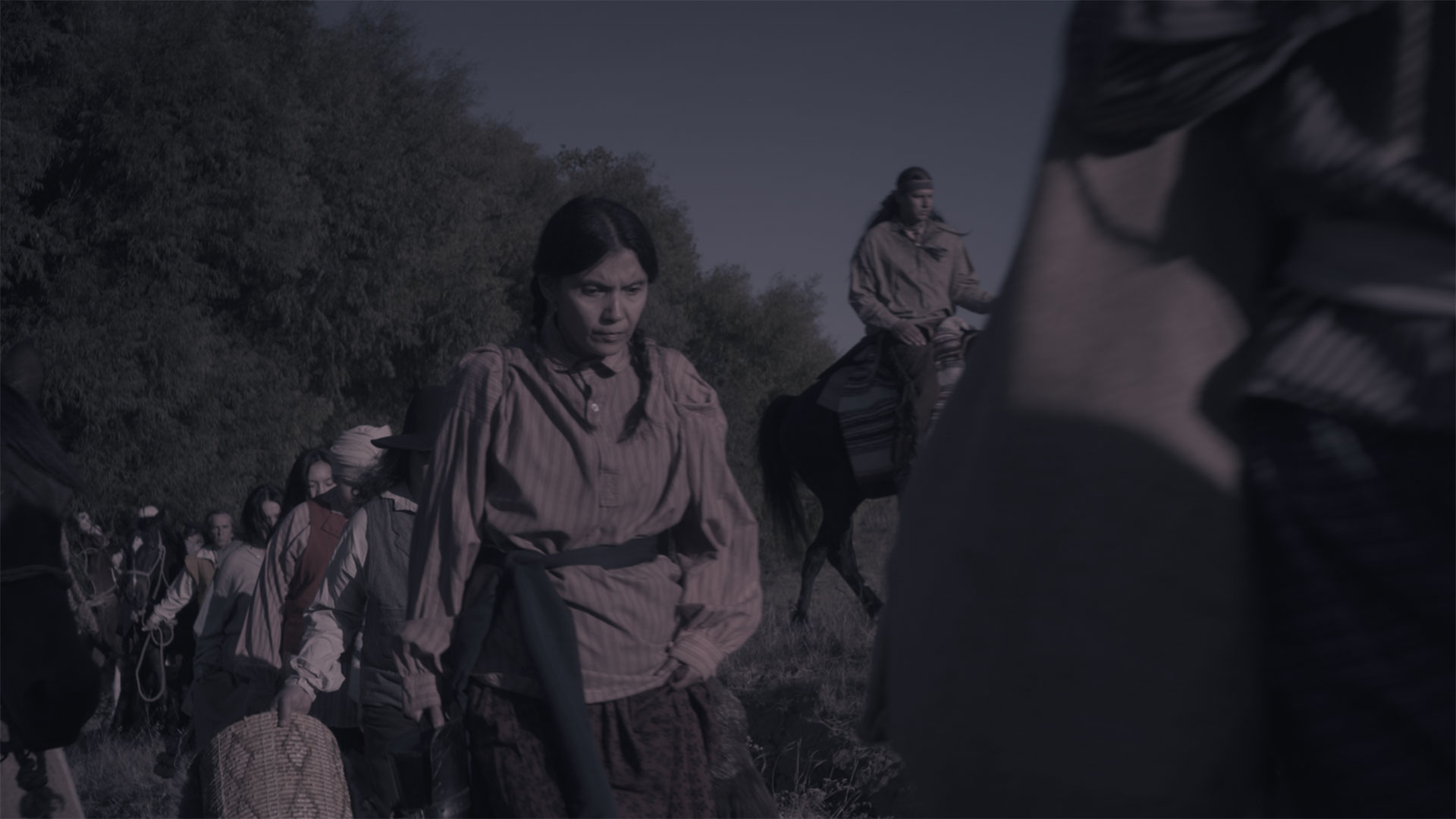
"They have neither the intelligence, the industry, the moral habits, nor the desire of improvement which are essential to any favorable change in their condition. Established in the midst of another and a superior race, and without appreciating the causes of their inferiority or seeking to control them, they must necessarily yield to the force of circumstances and ere long disappear."
"but we cannot rightfully compel the cession his lands, or take them by violence, if his consent be withheld."
"His famous, or rather I should say infamous Indian bill was brought forward and, and I opposed it from the purest motives in the world. Several of my colleagues got around me, and told me how well they loved me, and that I was ruining myself. They said it was a favorite measure of the President, and I ought to go for it. I told them I believed it was a wicked unjust measure, and that I should go against it, let the cost to myself be what it might."
House vote:
Senate vote:
In the whole scene there was an air of ruin and destruction, something which betrayed a final and irrevocable adieu; one couldn't watch without feeling one's heart wrung. The Indians were tranquil, but sombre and taciturn. There was one who could speak English and of whom I asked why the Chactas (Choctaw Indians) were leaving their country. "To be free," he answered, could never get any other reason out of him. We… watch the expulsion… of one of the most celebrated and ancient American peoples."
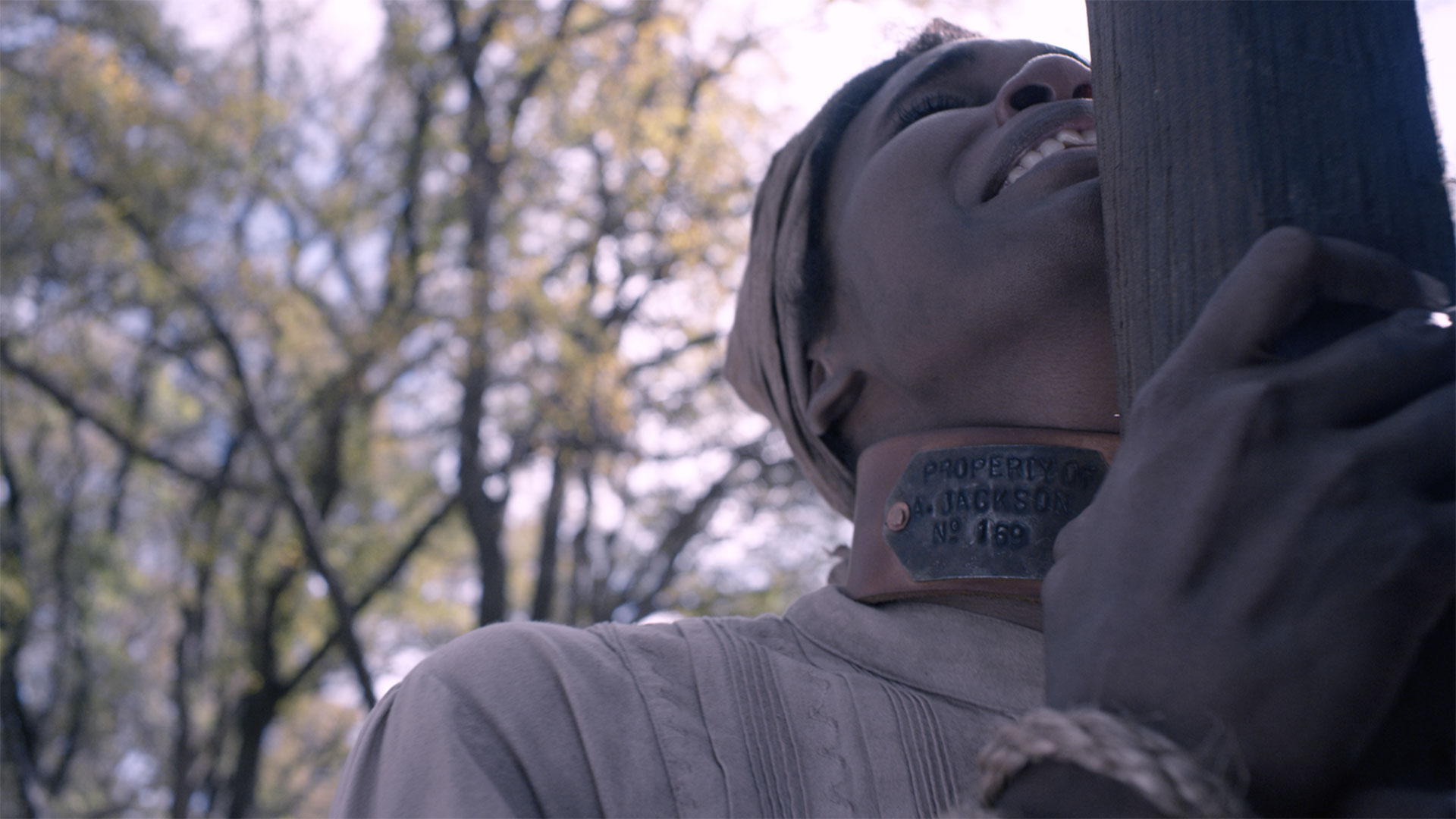
At the time of his death in 1845, Jackson owned approximately 150 people who lived and worked on the property.
Jackson's letter to Dr. Brunaugh (July 3, 1821): "Betty is capable of being a good and valuable servant, but to have her so, she must be ruled with the cowhide."
"And ten dollars extra, for every hundred lashes any person will give him, to the amount of three hundred."
In her "novel based on fact," Unholiest Patrimony: "Great Is the Truth and It Must Prevail," Dorothy Price-Haskins, one of Hannah's descendants, argues that Jackson had a sexual relationship with her ancestor, resulting in the birth of their daughter, Charlotte. She claims that Charlotte documented this relationship in her journal, which, along with other evidence of Jackson's paternity, has remained in family hands because of harassment and threats.
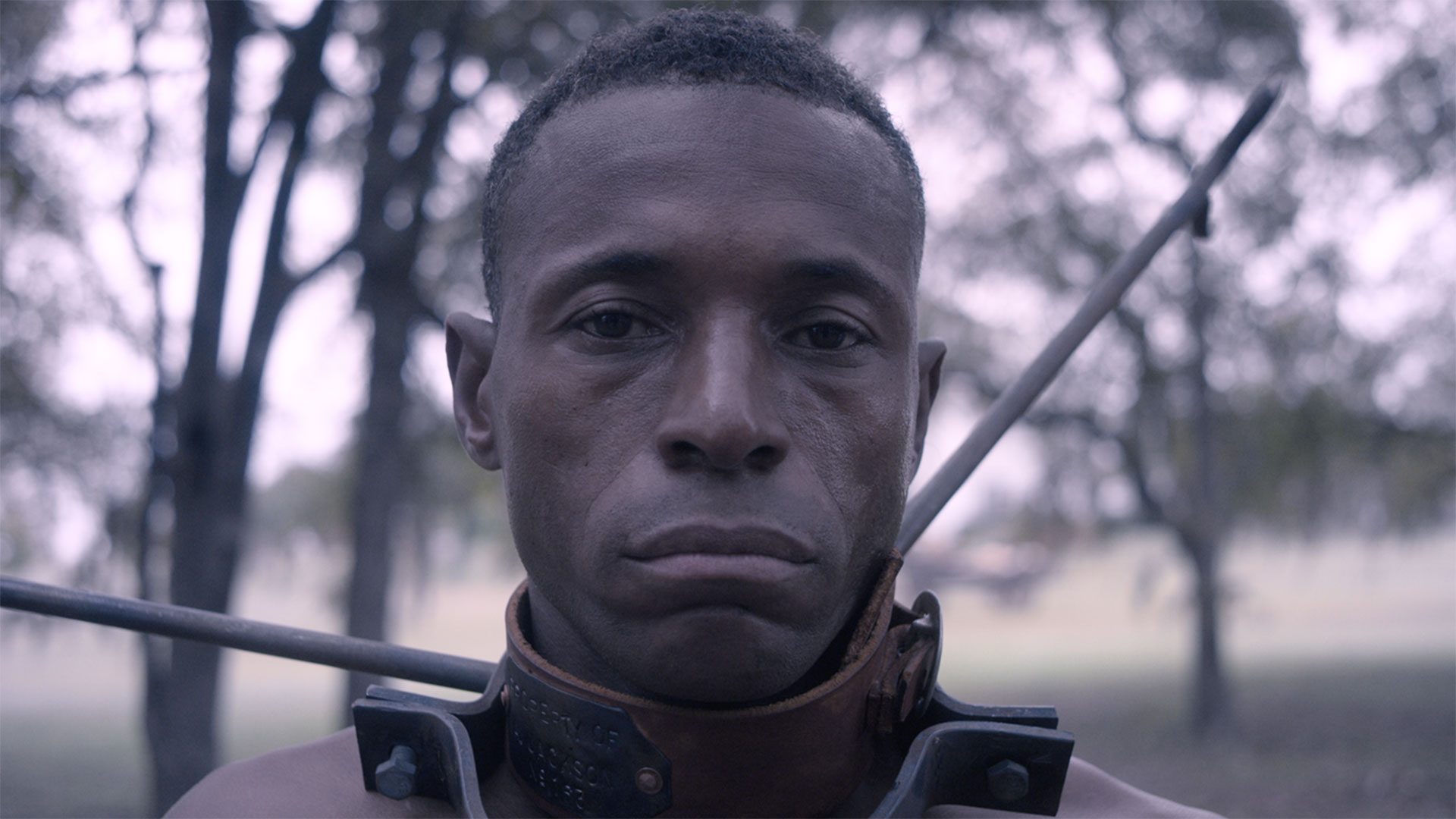
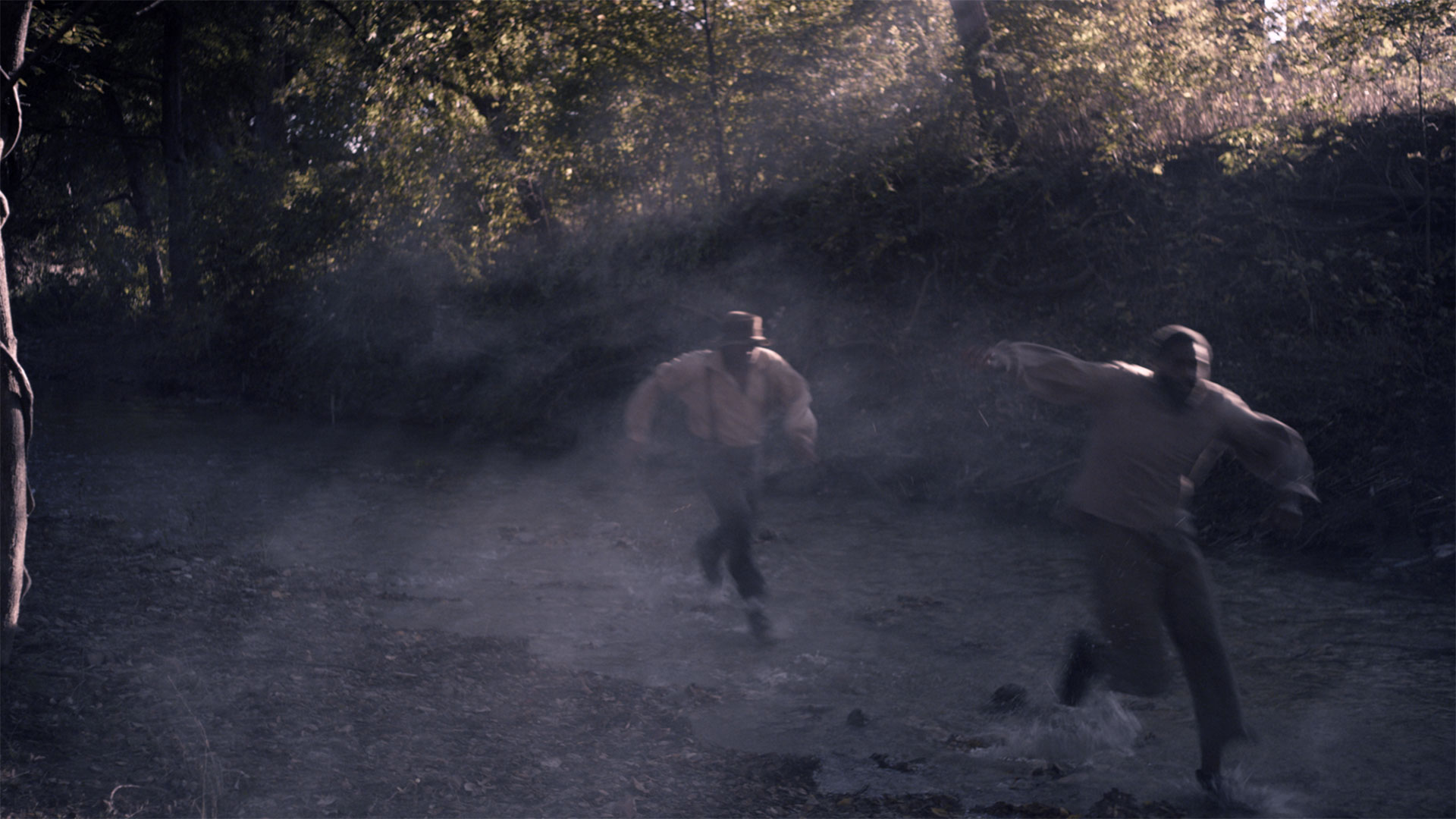
"…to the State or Territory in which he or she was arrested, with authority to such claimant, or his or her agent or attorney, to use such reasonable force and restraint as may be necessary, under the circumstances of the case, to take and remove such fugitive person back to the State or Territory whence he or she may have escaped as aforesaid."
House vote
Senate Vote
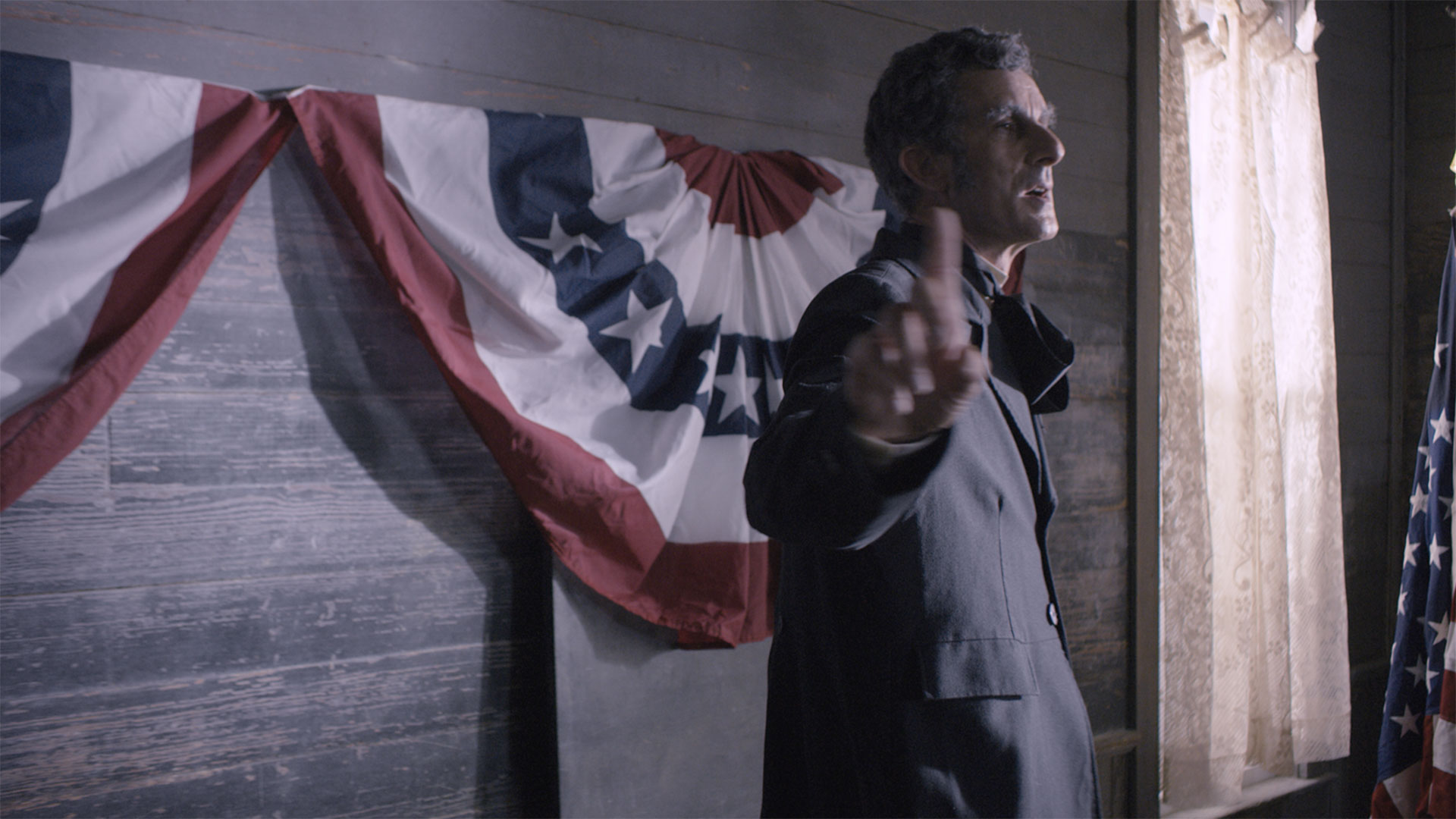
"The Nebraska Bill passed the house on May 22. The next day about thirty anti-slavery members of the House of Representatives, Whigs and Democrats, held a meeting and discussed the necessity of organizing a new party under the name 'Republican,' and they pledged themselves to fight against the extension of slavery."
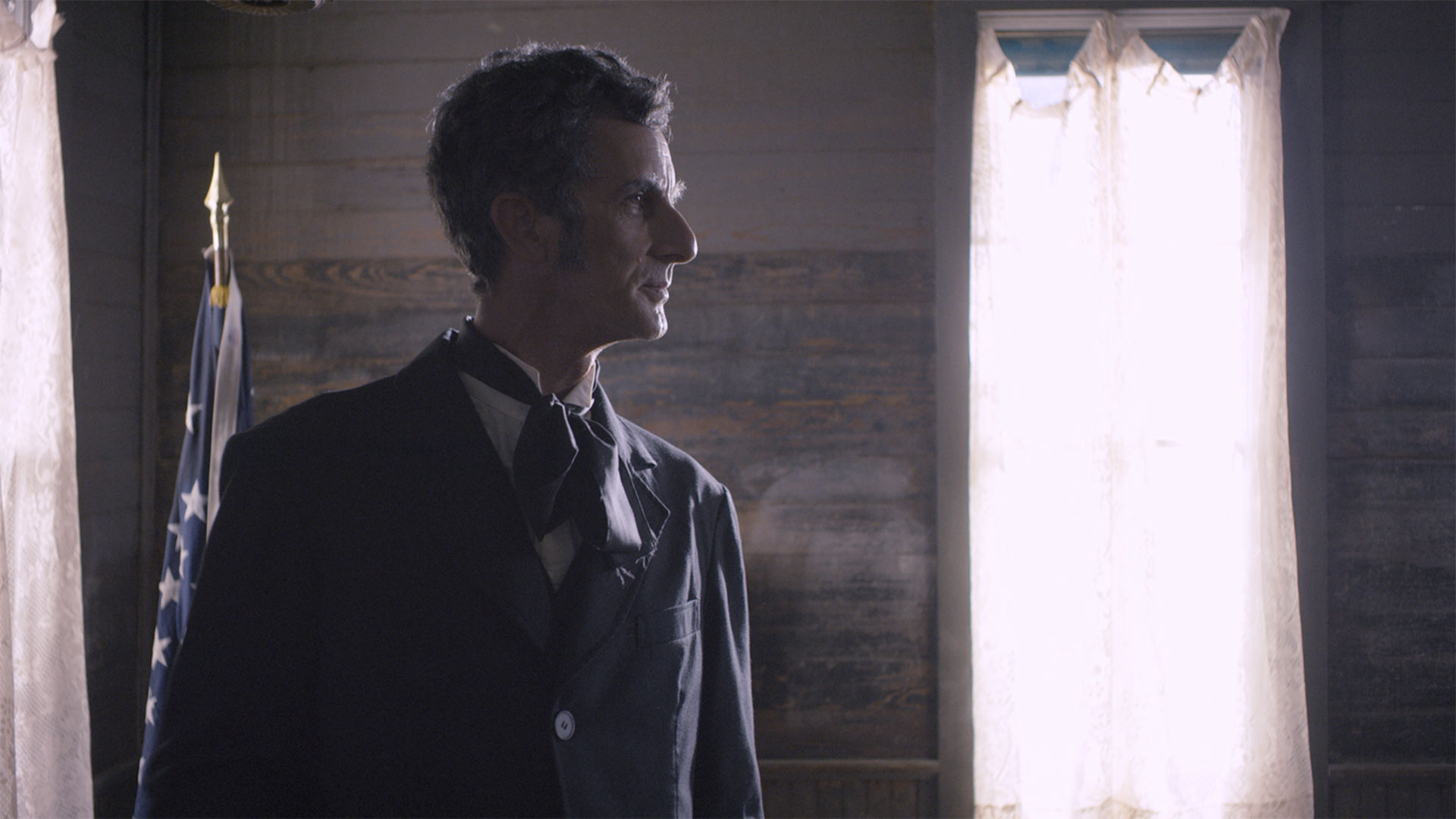
"The key to the Republican party's success was its position on slavery. It opposed the expansion of slavery and called upon Congress to take measures, whenever necessary, to prevent its extension. It condemned slavery as an immoral institution, a relic of "barbarism," and most Republicans thought that by confining slavery within its present boundaries, the institution would be placed on the road to eventual extinction."
"Resolved, That the enactments of the State Legislatures to defeat the faithful execution of the Fugitive Slave Law, are hostile in character, subversive of the Constitution, and revolutionary in their effect."

"I hold that in the present state of civilization, where two races of different origin, and distinguished by color, and other physical differences, as well as intellectual, are brought together, the relation now existing in the slaveholding States between the two, is, instead of an evil, a good–a positive good."
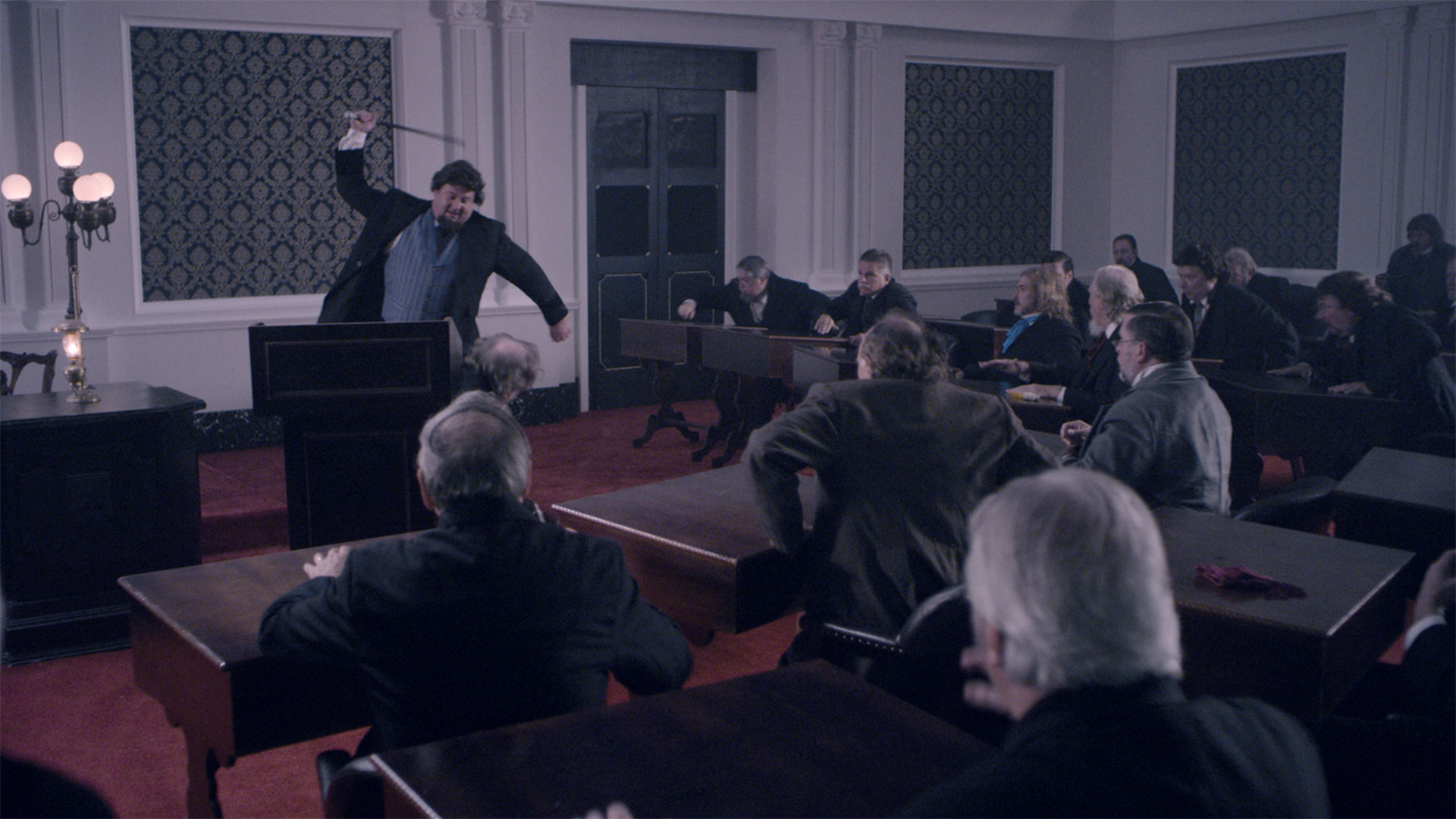
"…a mistress . . . who, though ugly to others, is always lovely to him; though polluted in the sight of the world, is chaste in his sight—I mean the harlot, Slavery."
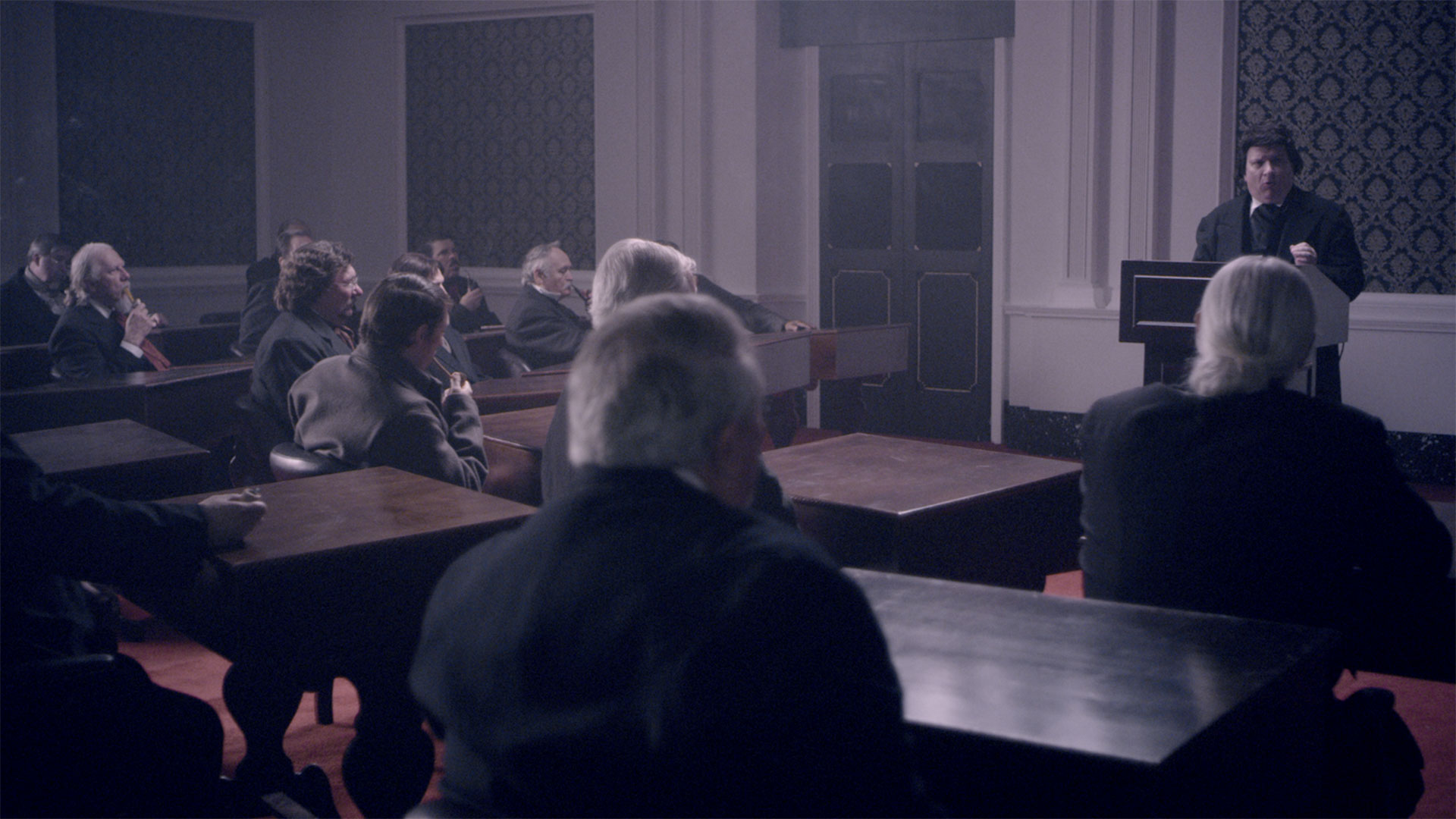
"We have settled the slavery question as far as we are concerned; we have prohibited it in Illinois forever; and in doing so, I think we have done wisely, and there is no man in the State who would be more strenuous in his opposition to the introduction of slavery than I would; but when we settled it for ourselves, we exhausted all our power over that subject. We have done our whole duty, and can do no more. We must leave each and every other State to decide for itself the same question."
"It is for them to decide, therefore, the moral and religious right of the slavery question for themselves within their own limits. I assert that they had as much right under the Constitution to adopt the system of policy which they have as we had to adopt ours. So it is with every other State in this Union. Let each State stand firmly by that great Constitutional right, let each State mind its own business and let its neighbors alone, and there will be no trouble on this question. If we will stand by that principle, then Mr. Lincoln will find that this Republic can exist forever divided into free and slave States, as our fathers made it and the people of each State have decided."
"I hold that a Negro is not and never ought to be a citizen of the United States. I hold that this government was made on the white basis; made by the white men, for the benefit of white men and their posterity forever, and should be administered by white men and none others."
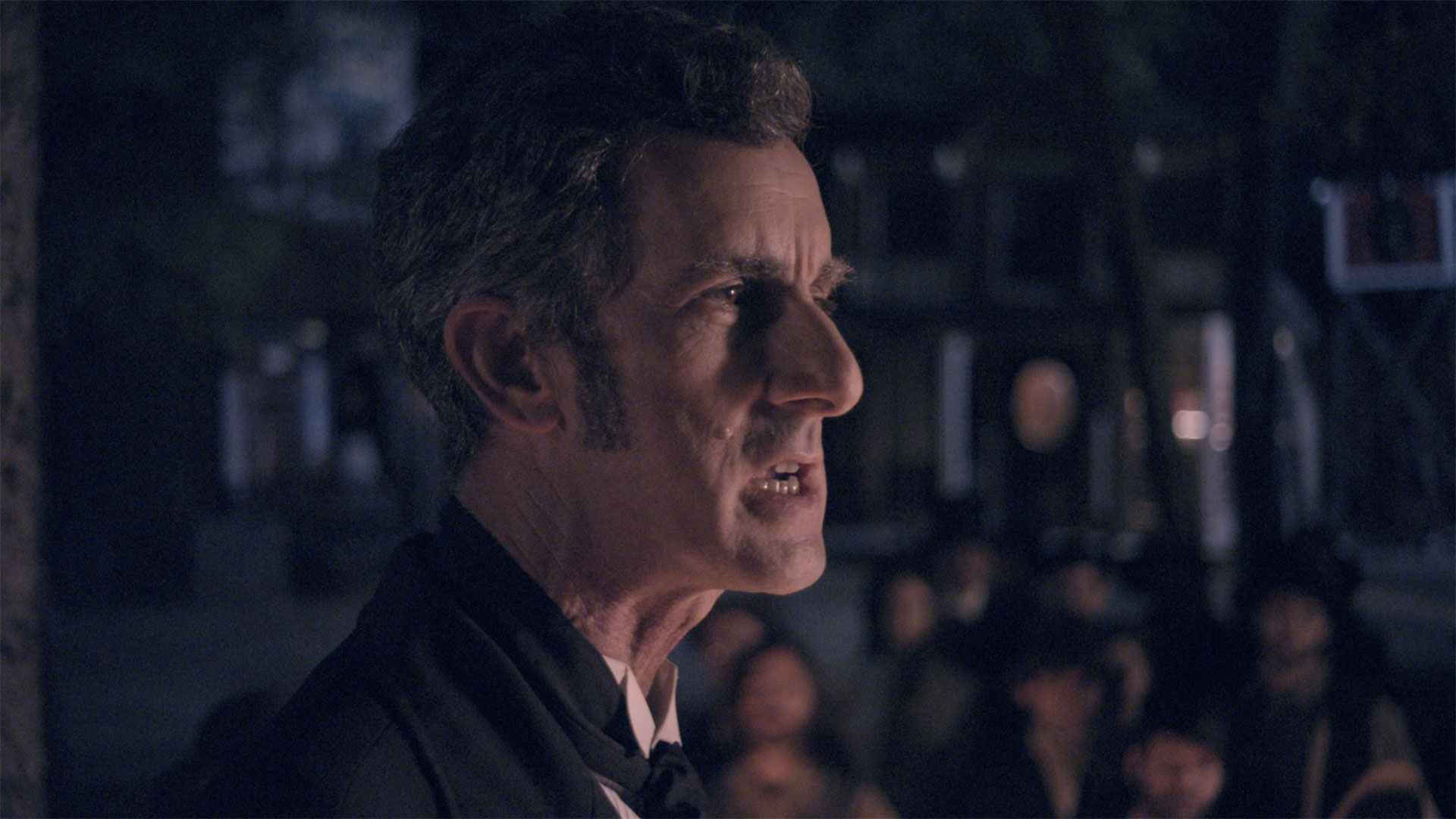
"…shall we discern therein any departure from those divine attributes which the believers in a living God always ascribe to Him? Fondly do we hope, fervently do we pray, that this mighty scourge of war may speedily pass away. Yet, if God wills that it continue until all the wealth piled by the bondsman's two hundred and fifty years of unrequited toil shall be sunk, and until every drop of blood drawn with the lash shall be paid by another drawn with the sword, as was said three thousand years ago, so still it must be said "the judgments of the Lord are true and righteous altogether."
"…still, in the right to put into his mouth the bread that his own hands have earned, he is the equal of every other man, white or black…. All I ask for the Negro is that if you do not like him, let him alone. If God gave him but little, that little let him enjoy."
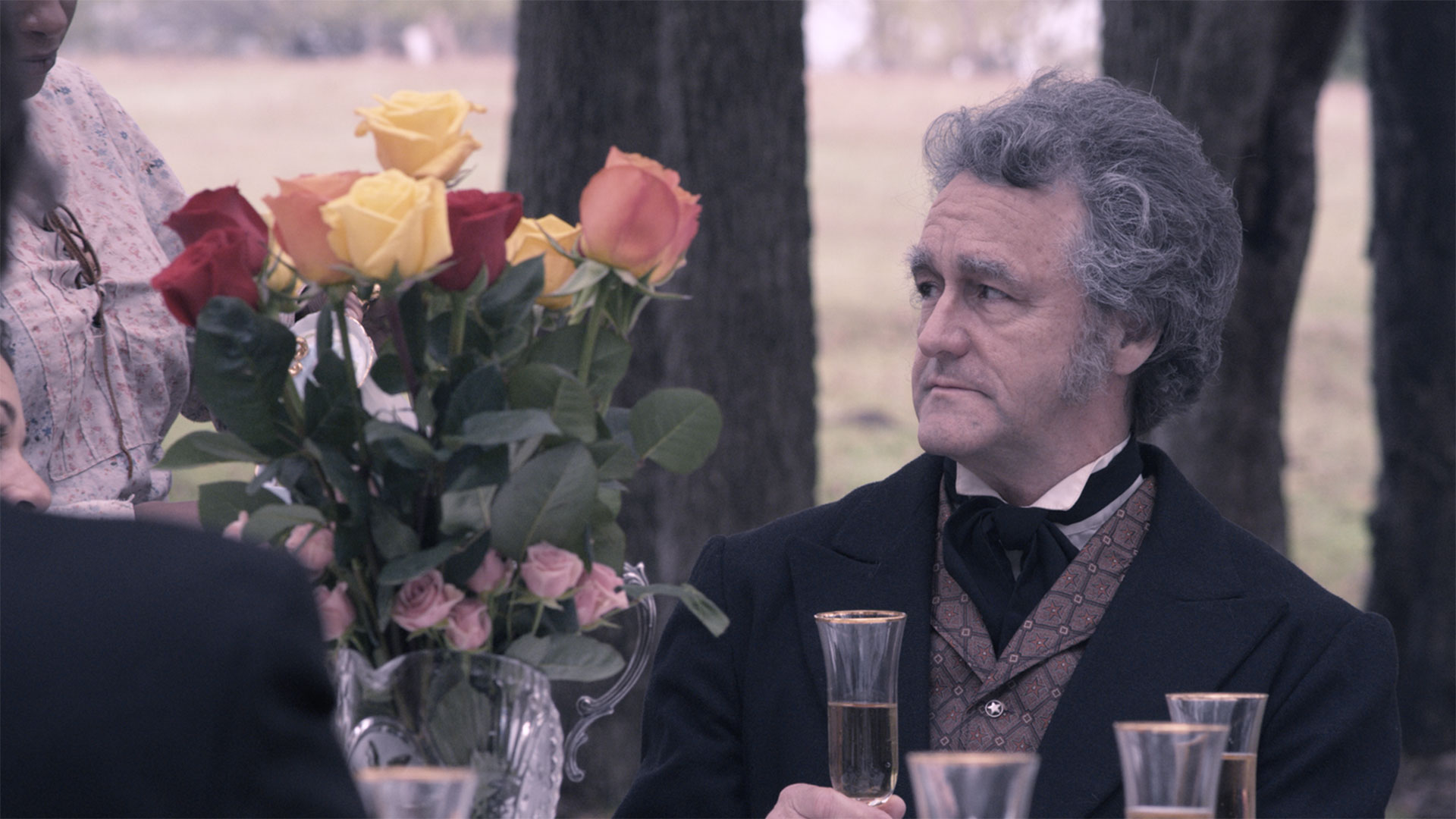
The Republican Party was founded as an anti-slavery party. It was oncentrated in free states where slavery was not permitted—in fact, Lincoln didn't even appear on ballot in 10 slave states. It's possible than an extensive search might produce a Republican that owned a slave, but so far we haven't found any. Of the top eight slaveowners by number of slaves, six were confirmed Democrats and the other two had no party affiliations.
| Name | Town | State | Number of Slaves | Confirmed Democrats |
| Col. Joshua John Ward | Georgetown | SC | 1130 | Yes |
| Dr. Stephen Duncan | Issaquena | MS | 858 | |
| John Burneside | Ascension | LA | 753 | |
| Saint James | LA | 187 | ||
| Meredith Calhoun | Rapides | LA | 709 | Yes |
| William Aiken | Colleton | SC | 700 | |
| Gov. John Manning | Ascension | LA | 670 | Yes |
| Col. Joseph A.S. Acklen | West Feliciana | LA | 659 | Yes |
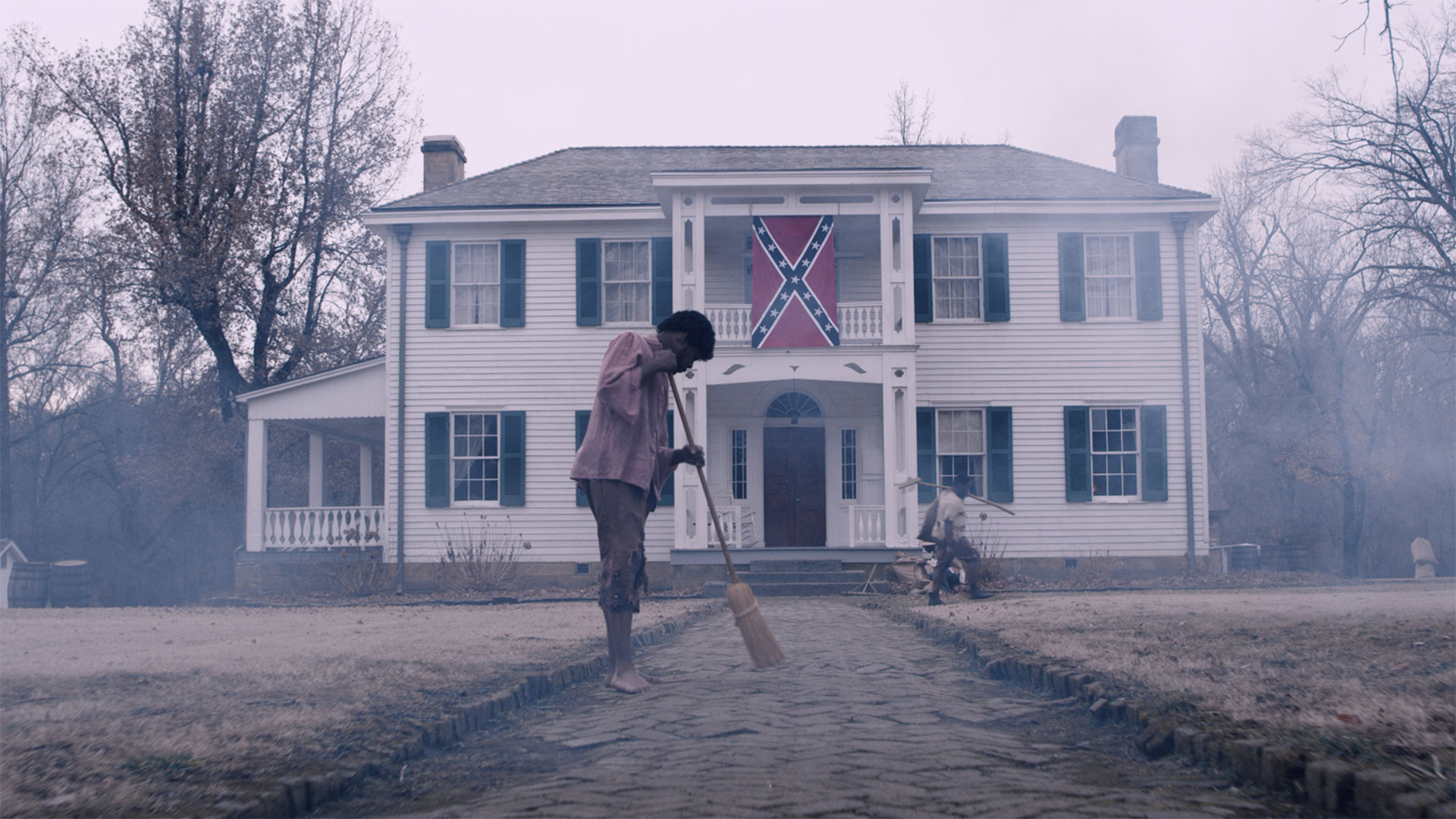
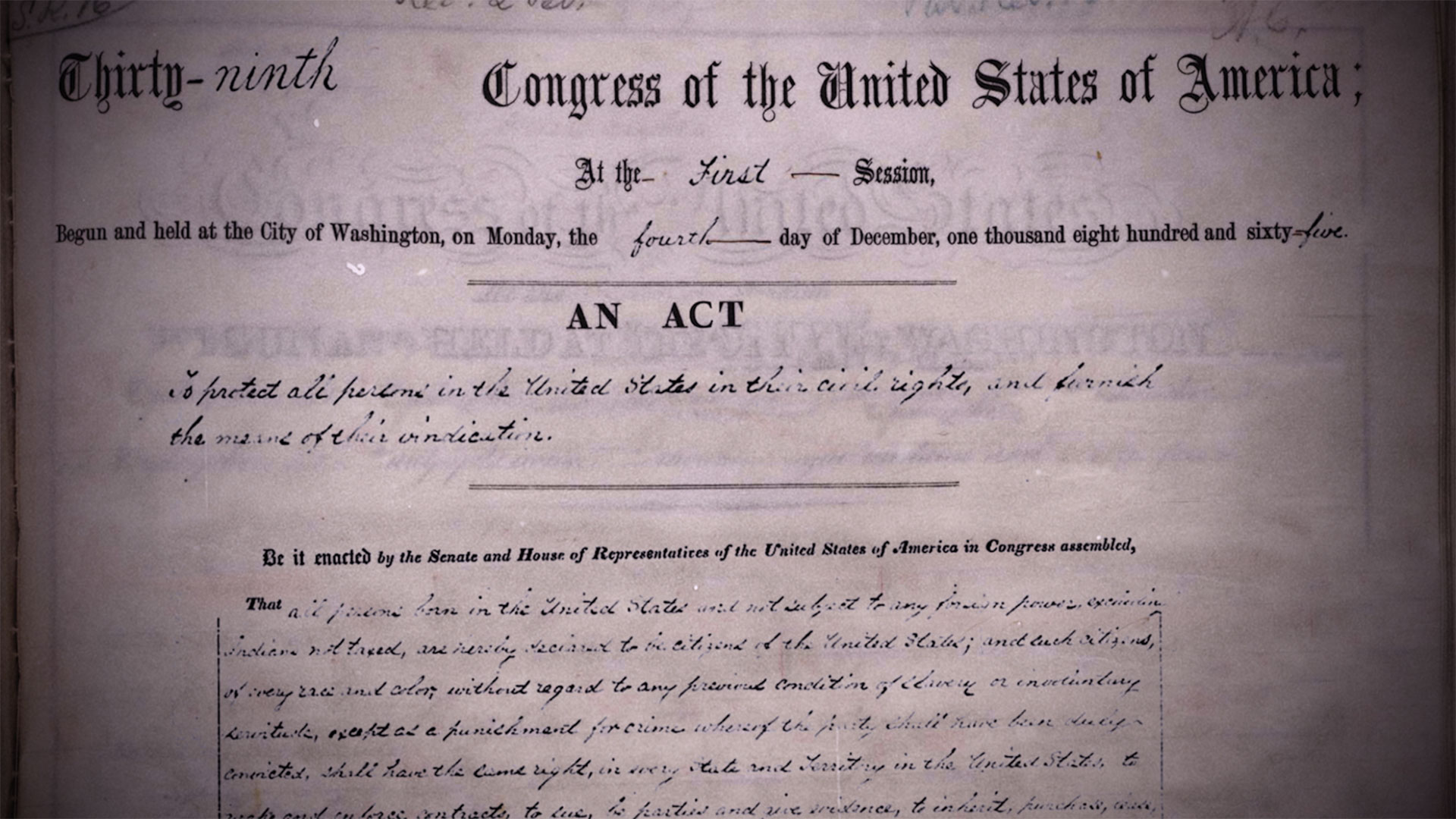
The Civil Rights Act of 1875 will allow "colored men shall sit at the same table beside the white guest; that he shall enter the same parlor and take his seat beside the wife and daughter of the white man, whether the white man is willing or not, because you prohibit discrimination against him."
"Four millions of them have just emerged from slavery into freedom. Can it be reasonably supposed that they possess the requisite qualifications to entitle them to all the privileges and immunities of citizenship of the United States? Have the people of the several States expressed such a conviction? It may also be asked, whether it is necessary that they should be declared citizens in order that they may be secured in the enjoyment of the civil rights proposed to be conferred by the bill. Those rights are, by Federals as well as by State laws, secured to all domiciled aliens and foreigners, even before the completion of the process of naturalization."
"Be it enacted by the Senate and House of Representatives of the United States of America in Congress assembled, That all persons born in the United States and not subject to any foreign power, excluding Indians not taxed, are hereby declared to be citizens of the United States; and such citizens, of every race and color, without regard to any previous condition of slavery or involuntary servitude, except as a punishment for crime whereof the party shall have been duly convicted, shall have the same right, in every State and Territory in the United States, to make and enforce contracts, to sue, be parties, and give evidence, to inherit, purchase, lease, sell, hold, and convey real and personal property, and to full and equal benefit of all laws and proceedings for the security of person and property, as is enjoyed by white citizens, and shall be subject to like punishment, pains, and penalties, and to none other, any law, statute, ordinance, regulation, or custom, to the contrary notwithstanding."
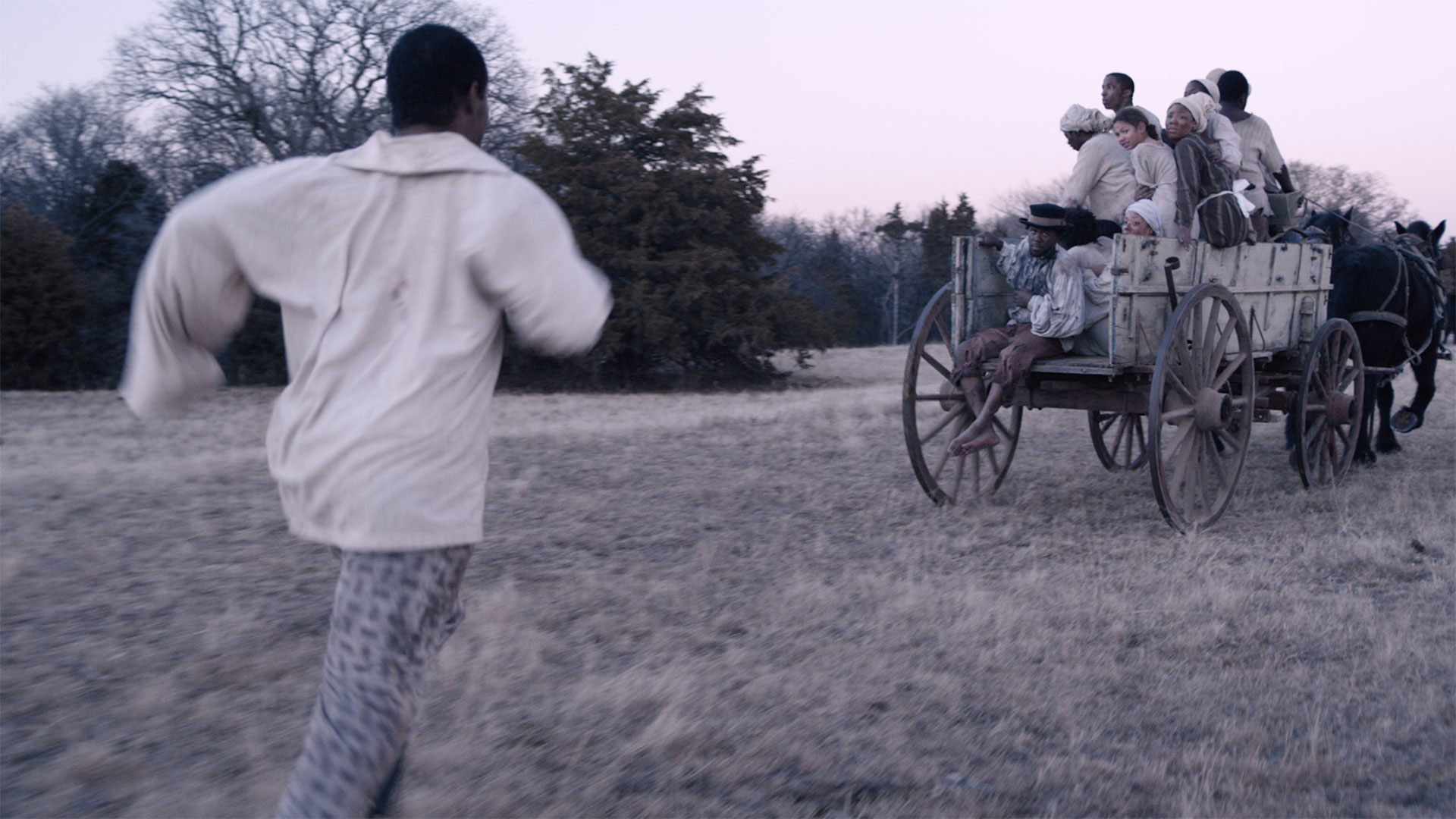
"The three parties named will subdivide the land, under the supervision of the inspector, among themselves and such others as may choose to settle near them, so that each family shall have a plot of not more than forty acres of tillable ground…"
"…the commissioner, under the direction of the President, shall have authority to set apart, for the use of loyal refugees and freedmen, such tracts of land within the insurrectionary states as shall have been abandoned, or to which the United States shall have acquired title by confiscation or sale, or otherwise, and to every male citizen, whether refugee or freedman, as aforesaid, there shall be assigned not more than forty acres of such land…"
"I, ANDREW JOHNSON, President of the United States, do proclaim and declare that I hereby grant to all persons who have directly or indirectly participated in the existing rebellion, except as hereinafter excepted, amnesty and pardon, with restoration of all rights of property, except as to slaves, and except in cases where legal proceedings under the laws of the United States providing for the confiscation of property of persons engaged in rebellion have been instituted."
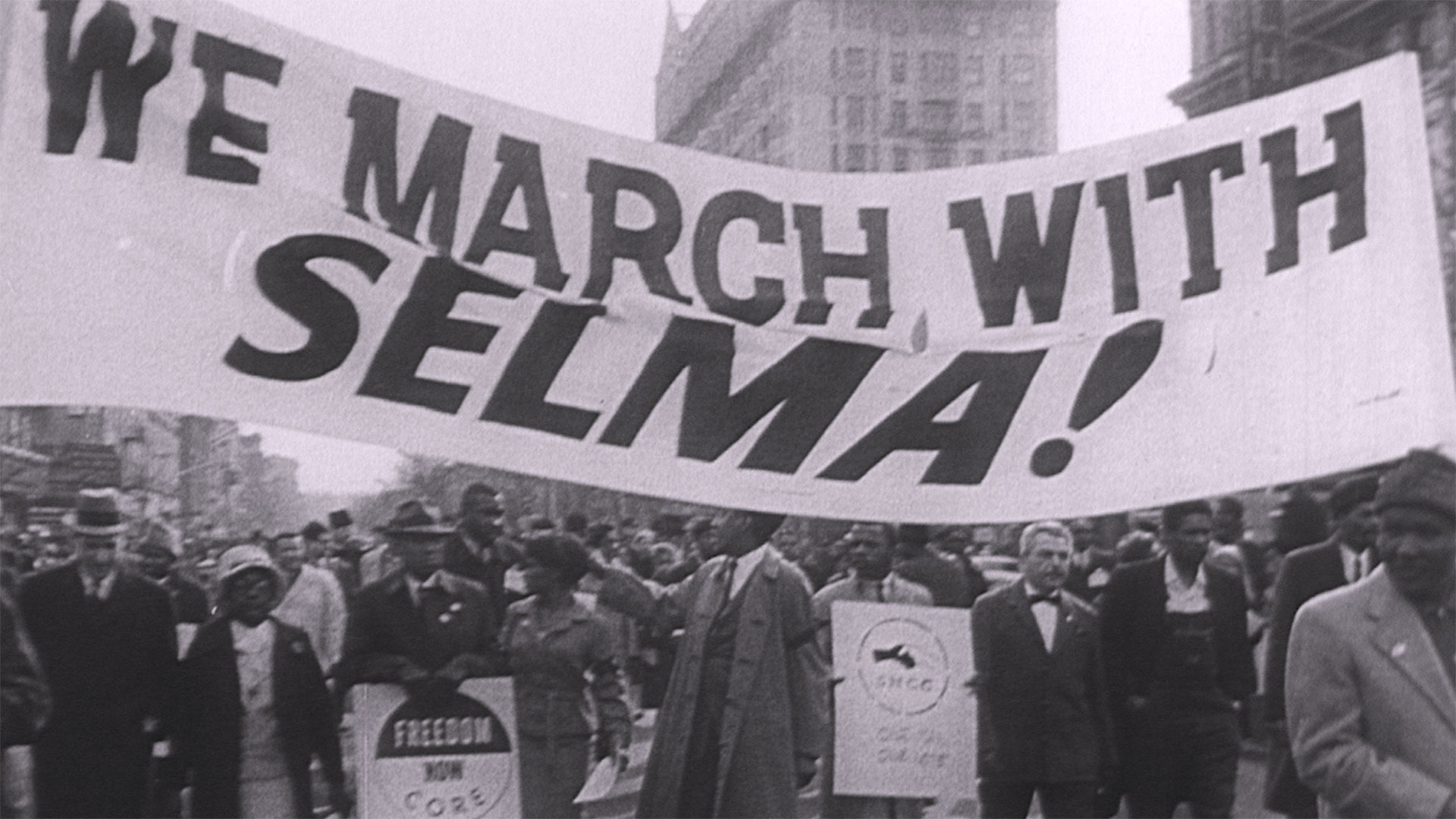
House
Senate
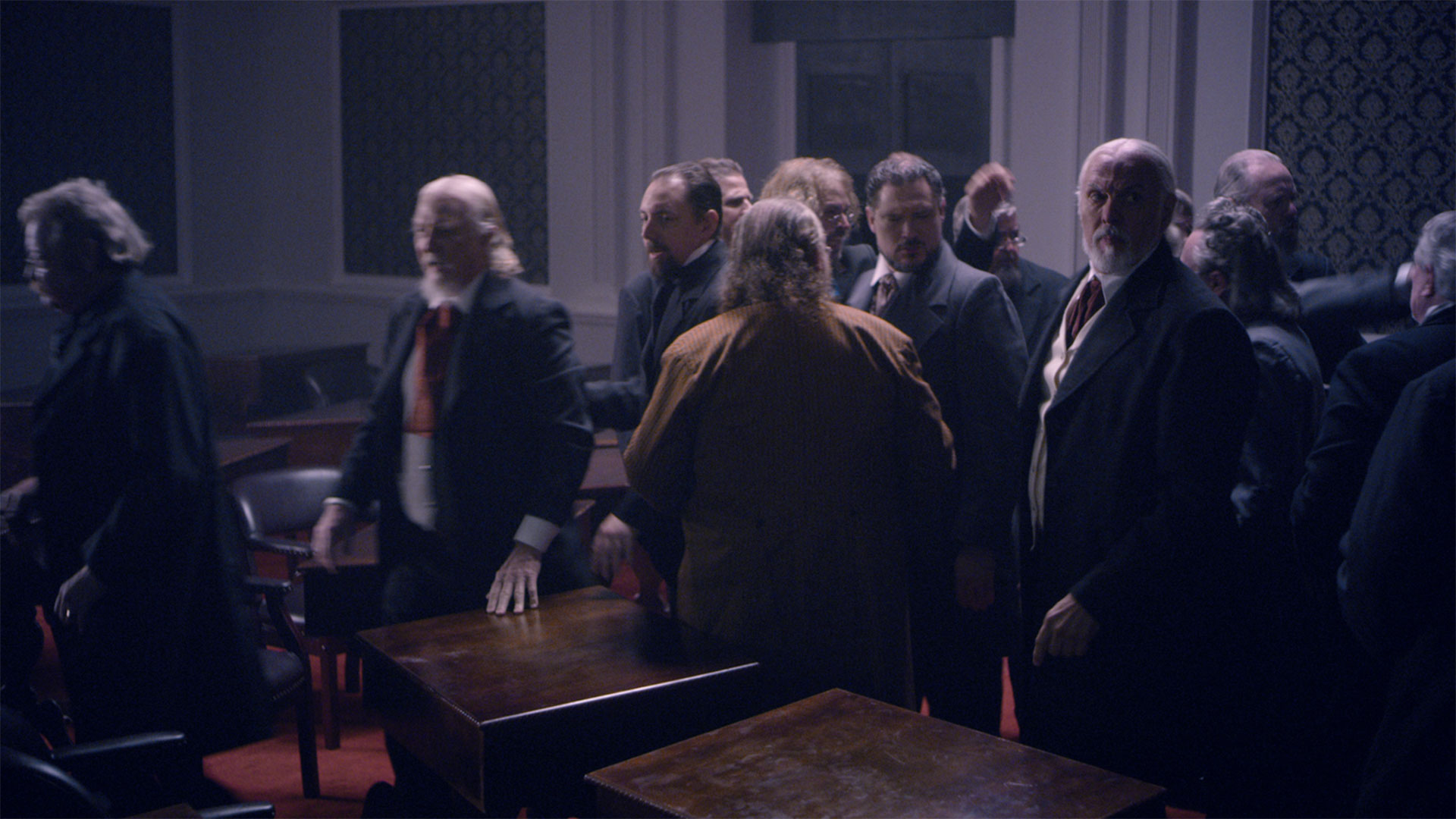
House
Senate
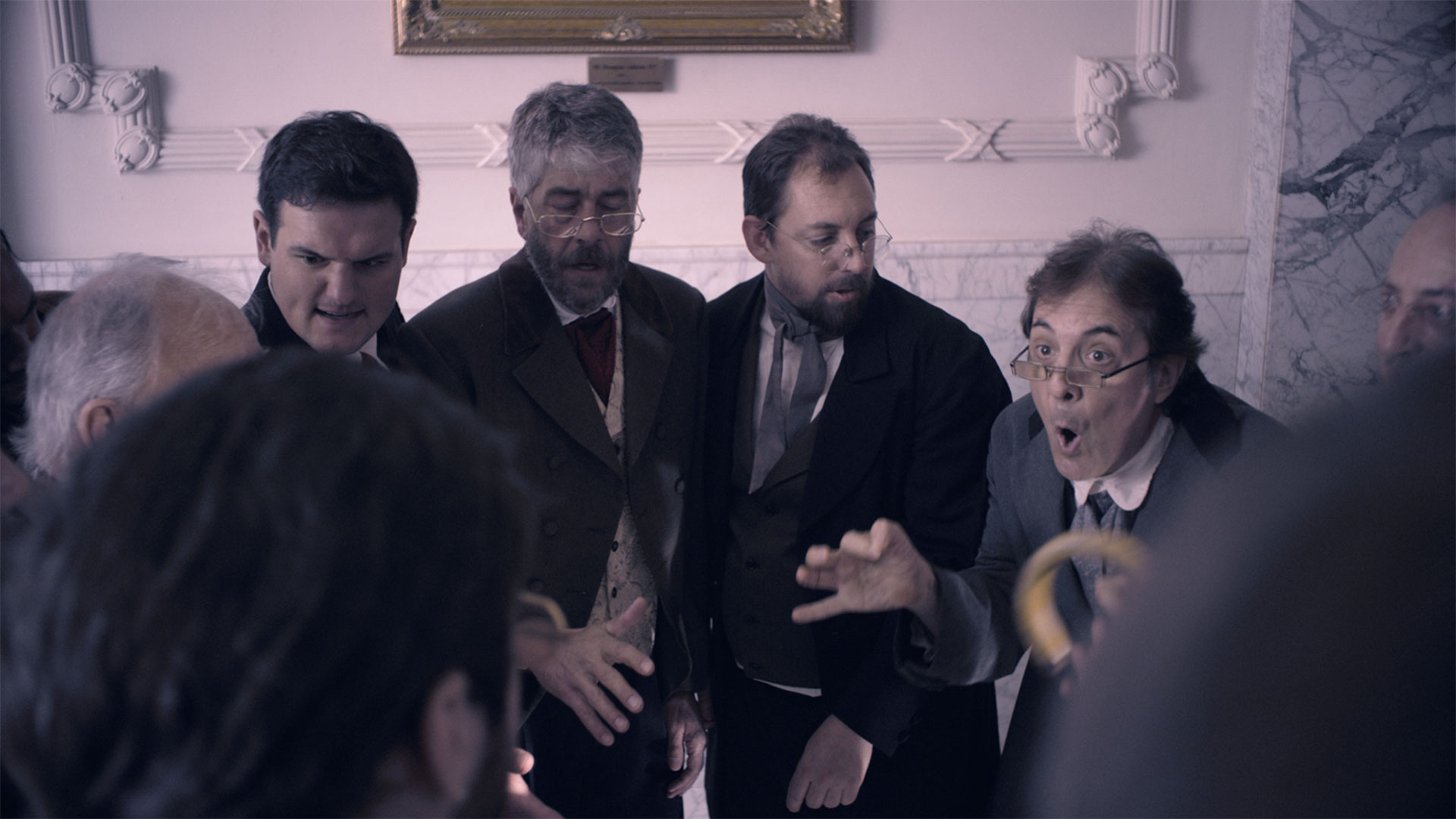
House
Senate
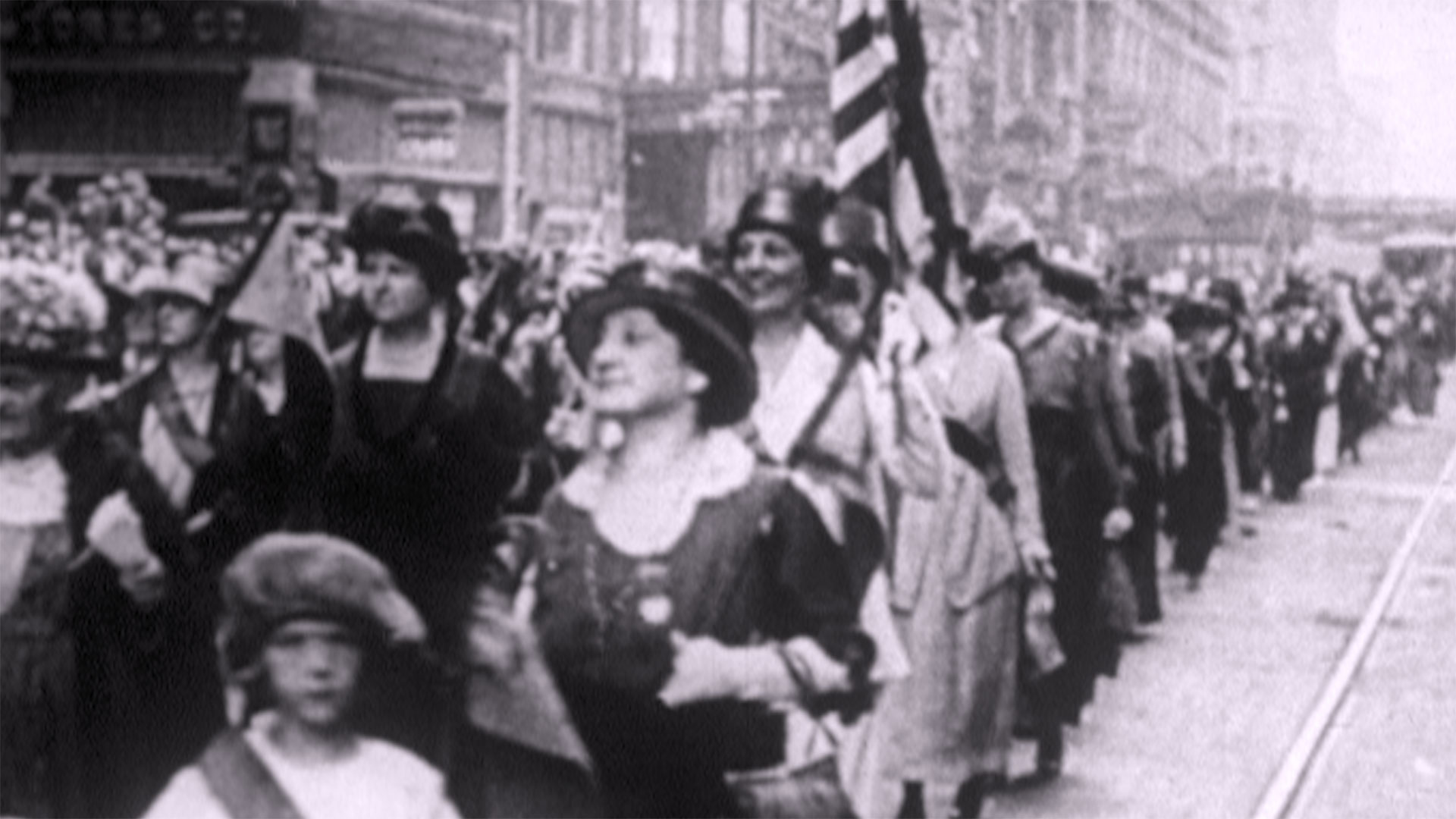
"The right of citizens of the United States to vote shall not be denied or abridged by the United States or by any State on account of sex. Congress shall have power to enforce this article by appropriate legislation."
36 Republicans and 20 Democrats FOR; 8 Republicans and 17 Democrats AGAINST
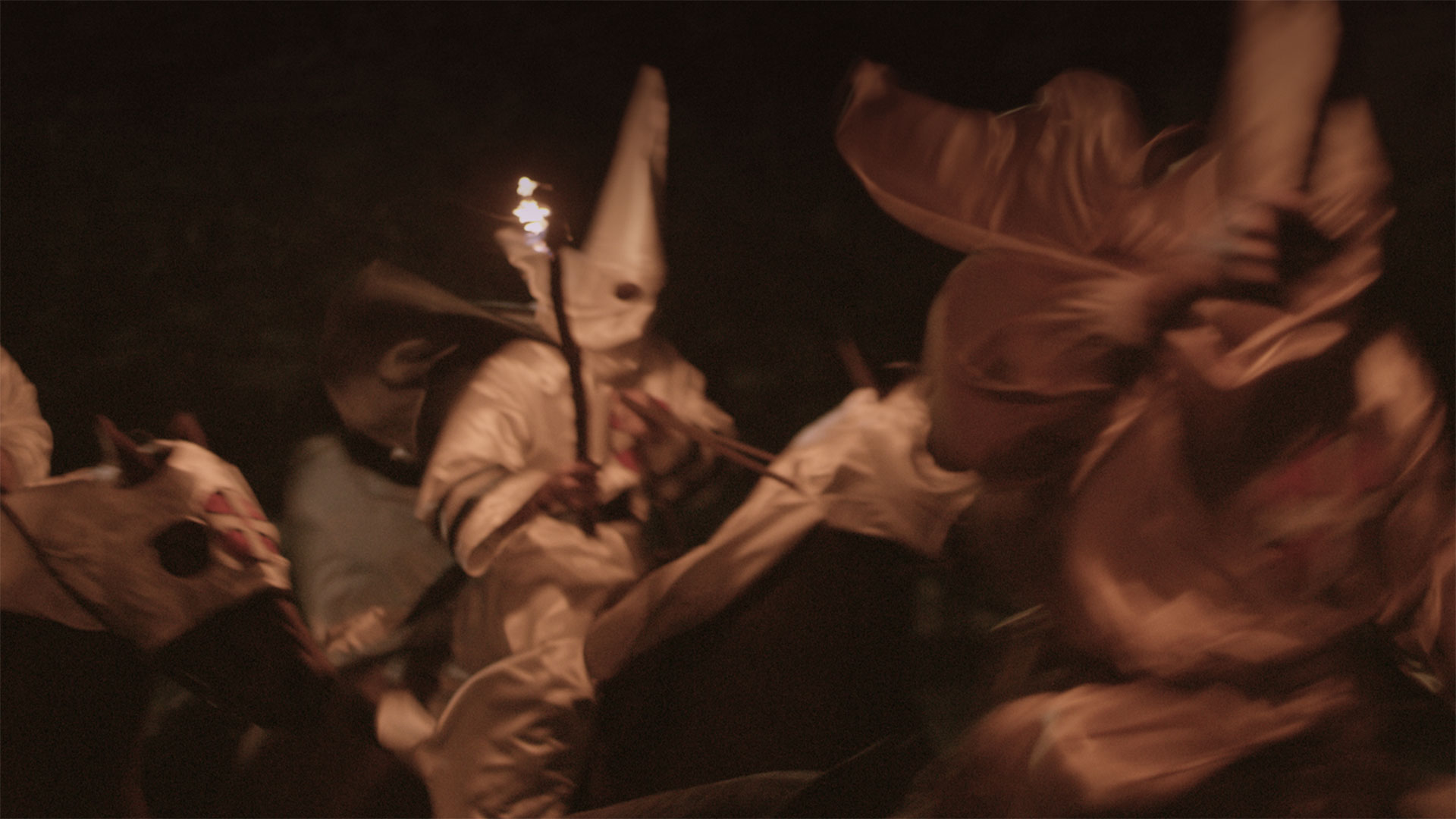
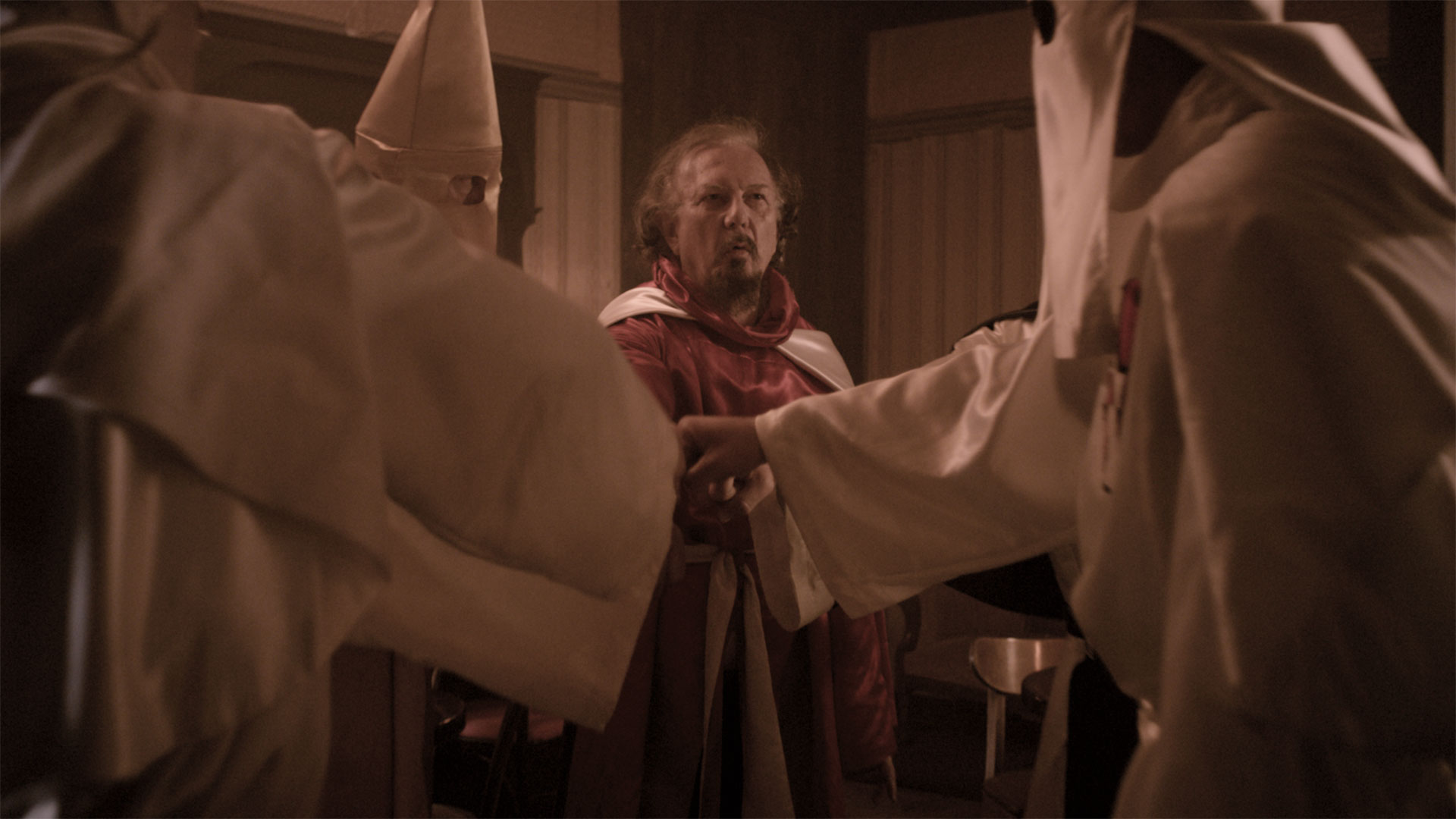
"Its objects originally were protection against Loyal Leagues and the Grand Army of the Republic; but after it became general it was found that political matters and interests could best be promoted within it, and it was then made a political organization, giving its support, of course, to the Democratic Party."

The law suspended habeus corpus in order to allow President Grant to suppress the group's violence with military force
Upon the passage of the Reconstruction Acts, Hinds advocated the measures on a state level, as well as taught enfranchised African-American men about their newly acquired rights as citizens. His assassination by a Ku Klux Klan (KKK) member was deemed politically motivated. He is one of the six members in the history of the U.S. Congress to have been murdered, as well as the highest-ranking government official to be killed in any state during Reconstruction.
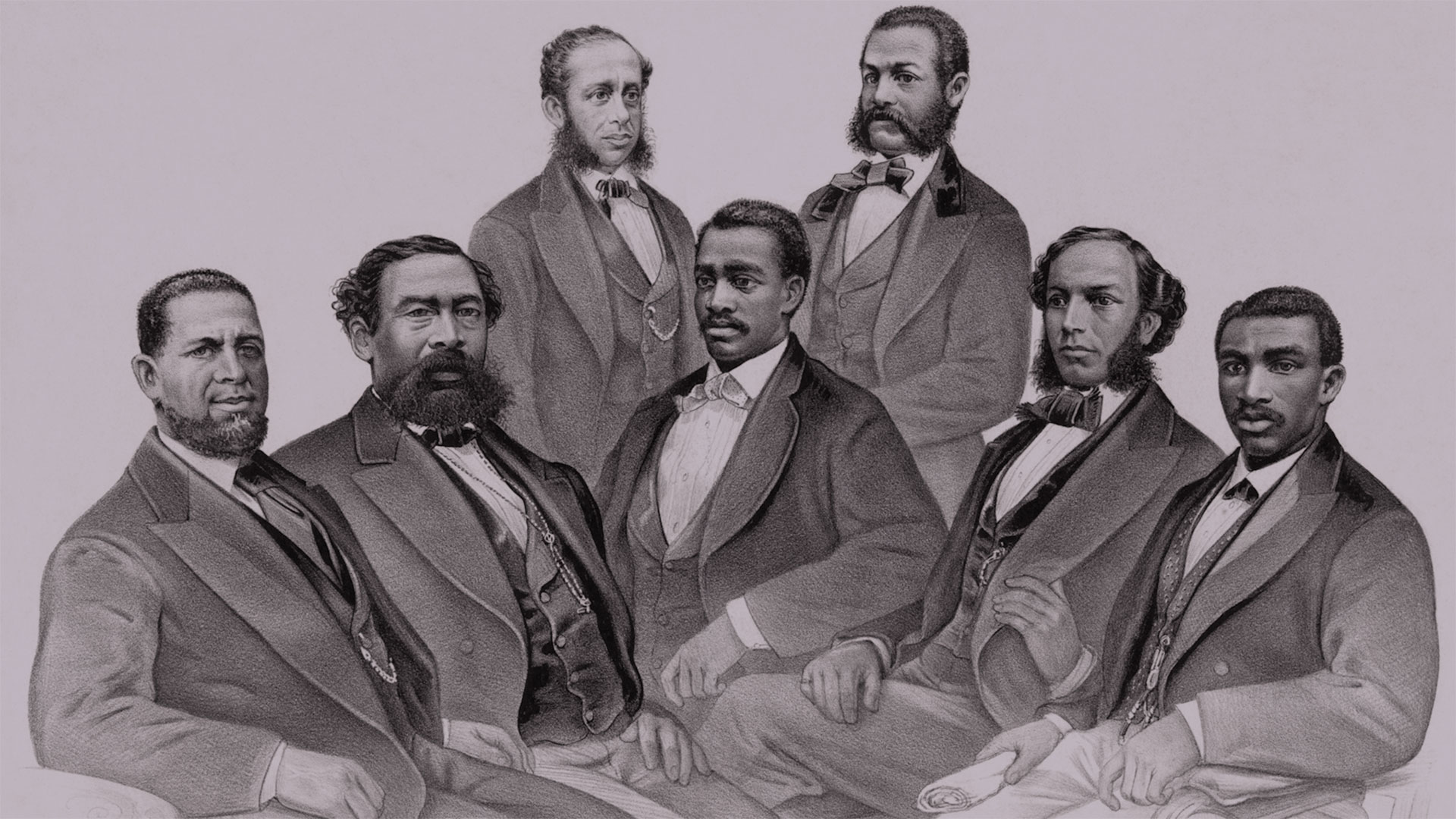
For example, South Carolina's population consisted of 57% of the population
"Since 1870, when Senator Hiram Revels of Mississippi and Representative Joseph Rainey of South Carolina became the first African Americans to serve in Congress, a total of 146 African Americans have served as U.S. Representatives, Delegates, or Senators."
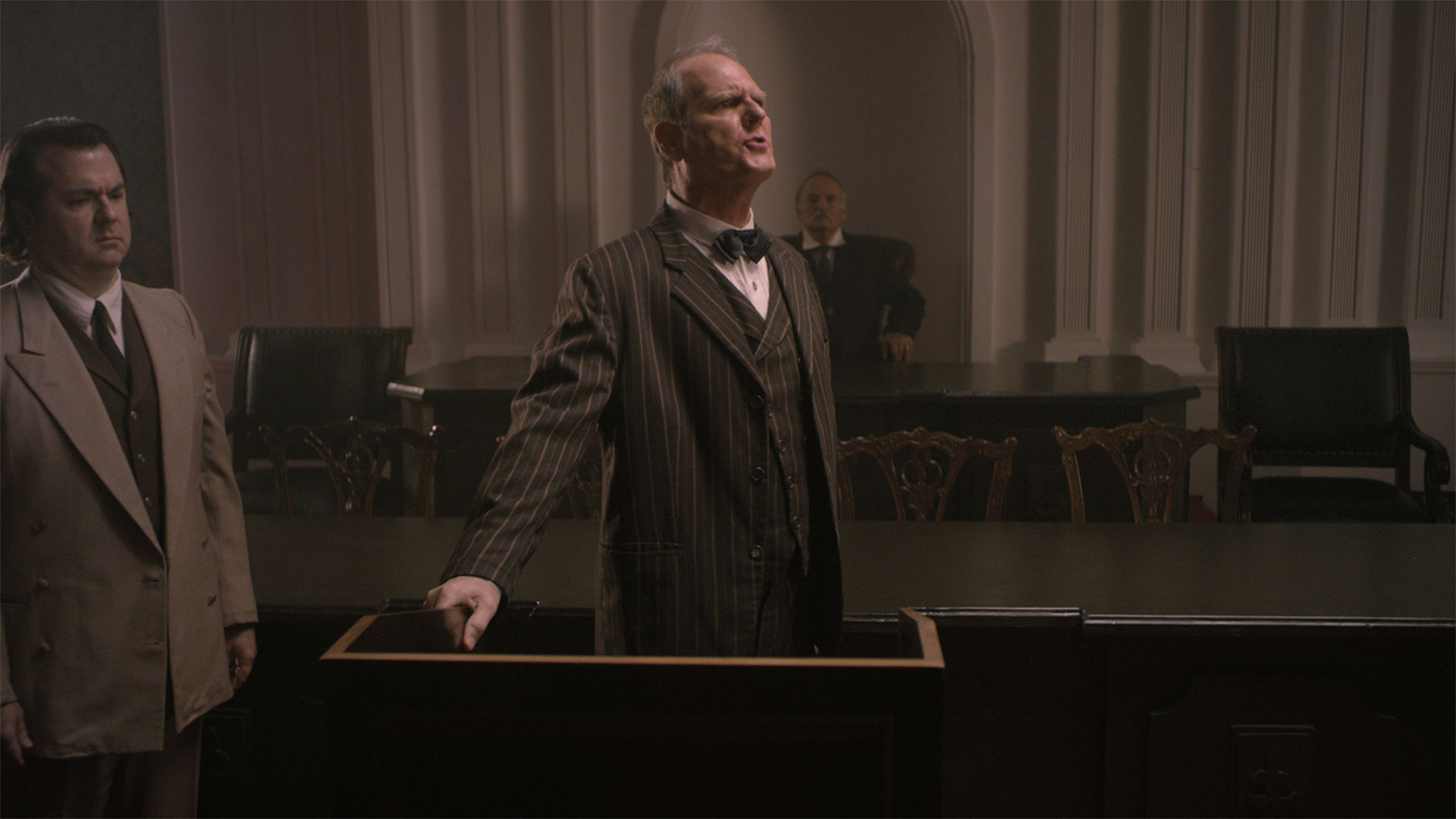
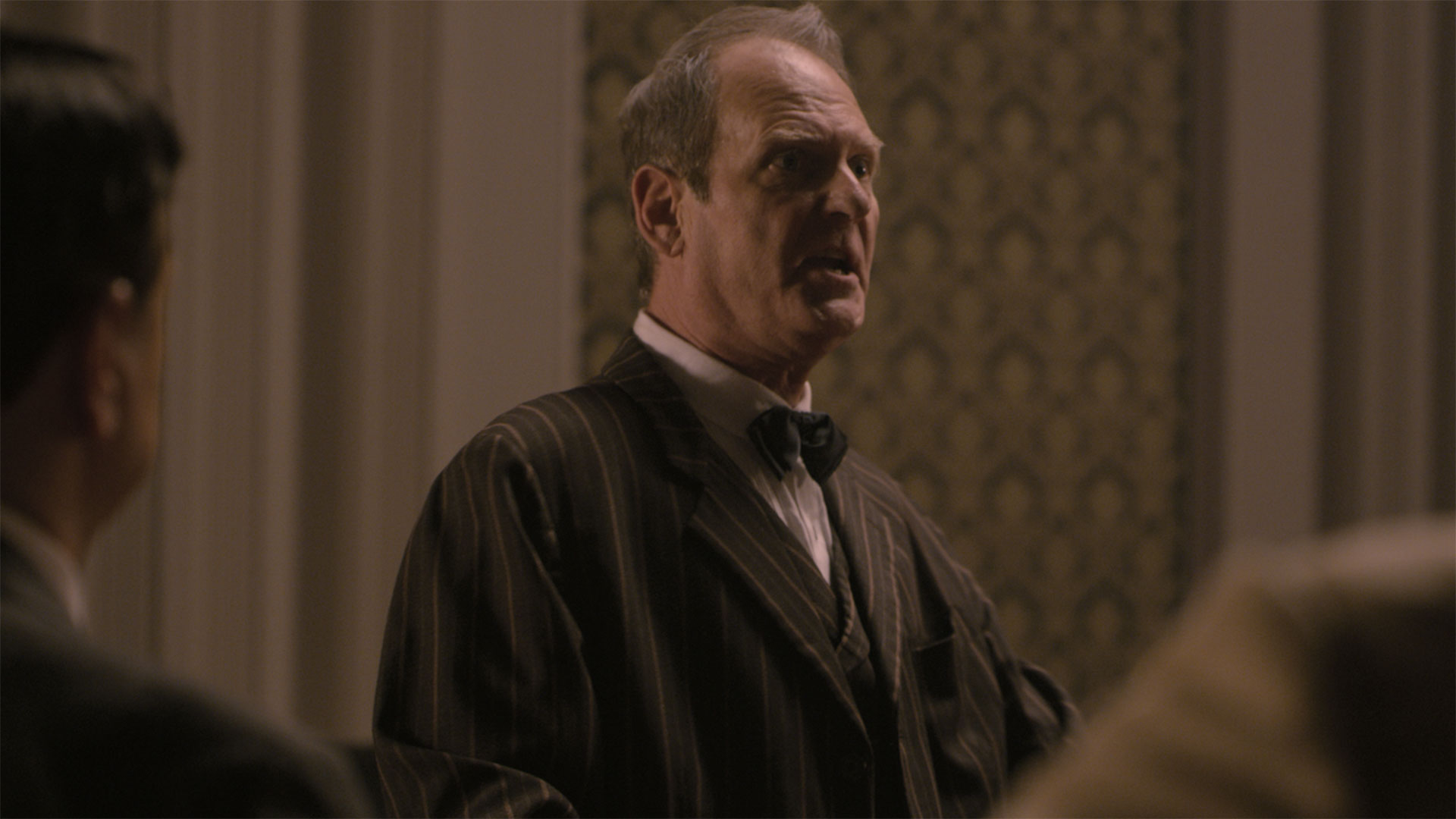
"I will say to the Senator, that as long as the Negroes continue to ravish white women we will continue to lynch them."
"We have never believed him to be the equal of the white man, and we will not submit to his gratifying his lust on our wives and daughters without lynching him."

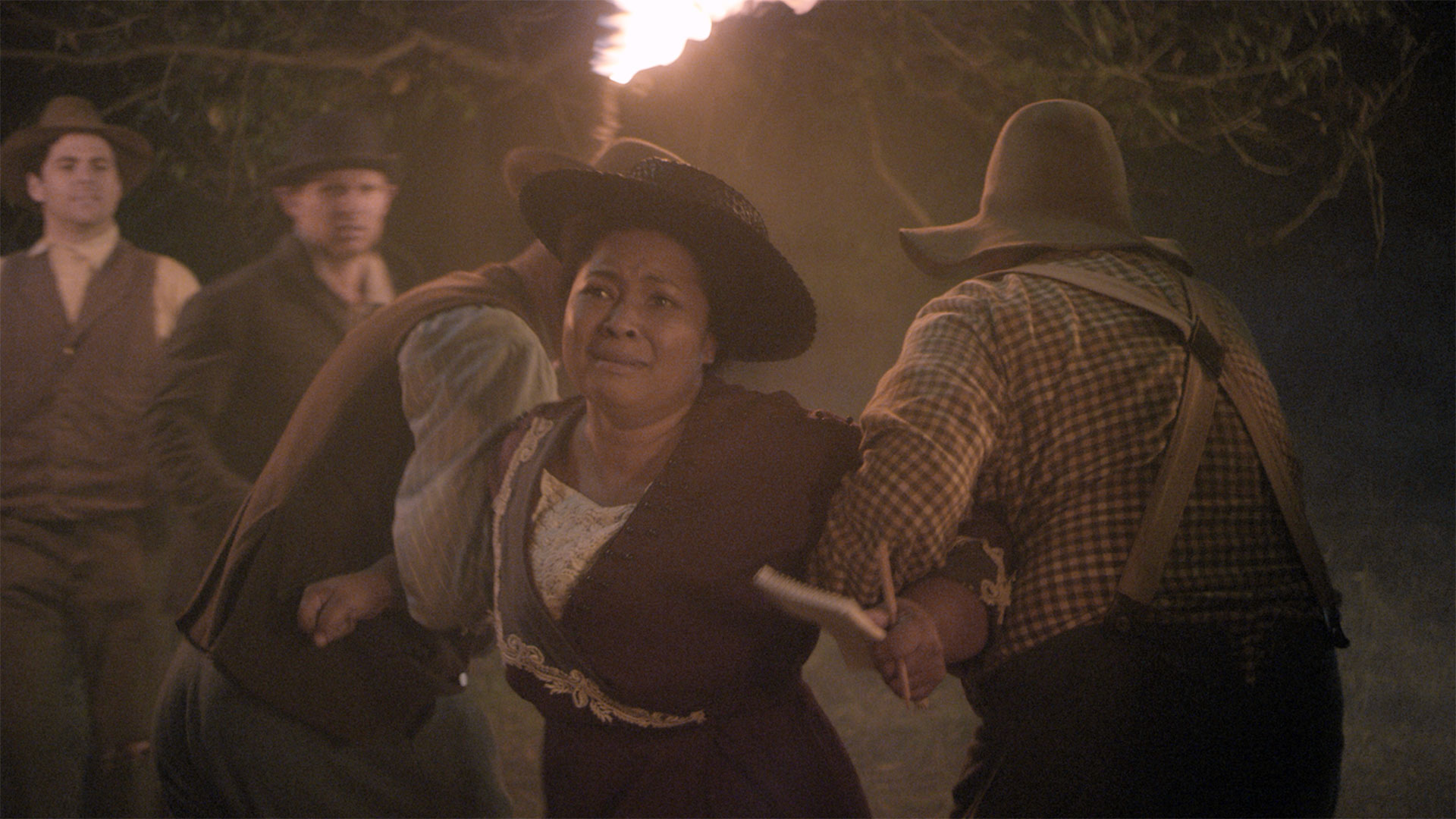
"Such suffering has seldom been witnessed, and through it all the Negro uttered hardly a cry. During the contortions of his body several blood vessels bursted. The spot selected was an ideal one for such an affair, and the stake was in full view of those who stood about with unfeigned satisfactions saw the Negro meet his death and saw him tortured before the flames killed him."
"The lesson this teaches and which every Afro American should ponder well, is that a Winchester rifle should have a place of honor in every black home, and it should be used for that protection which the law refuses to give. When the white man who is always the aggressor knows he runs as great a risk of biting the dust every time his Afro-American victim does, he will have greater respect for Afro-American life. The more the Afro-American yields and cringes and begs, the more he has to do so, the more he is insulted, outraged and lynched."
"I am not a Democrat because the Democrats considered me a chattel and possibly might have always so considered me, because their record from the beginning has been inimical to my interests; because they had become notorious in their hatred of the Negro as a man, have refused him the ballot, have murdered, beaten and outraged him and refused him of his rights."
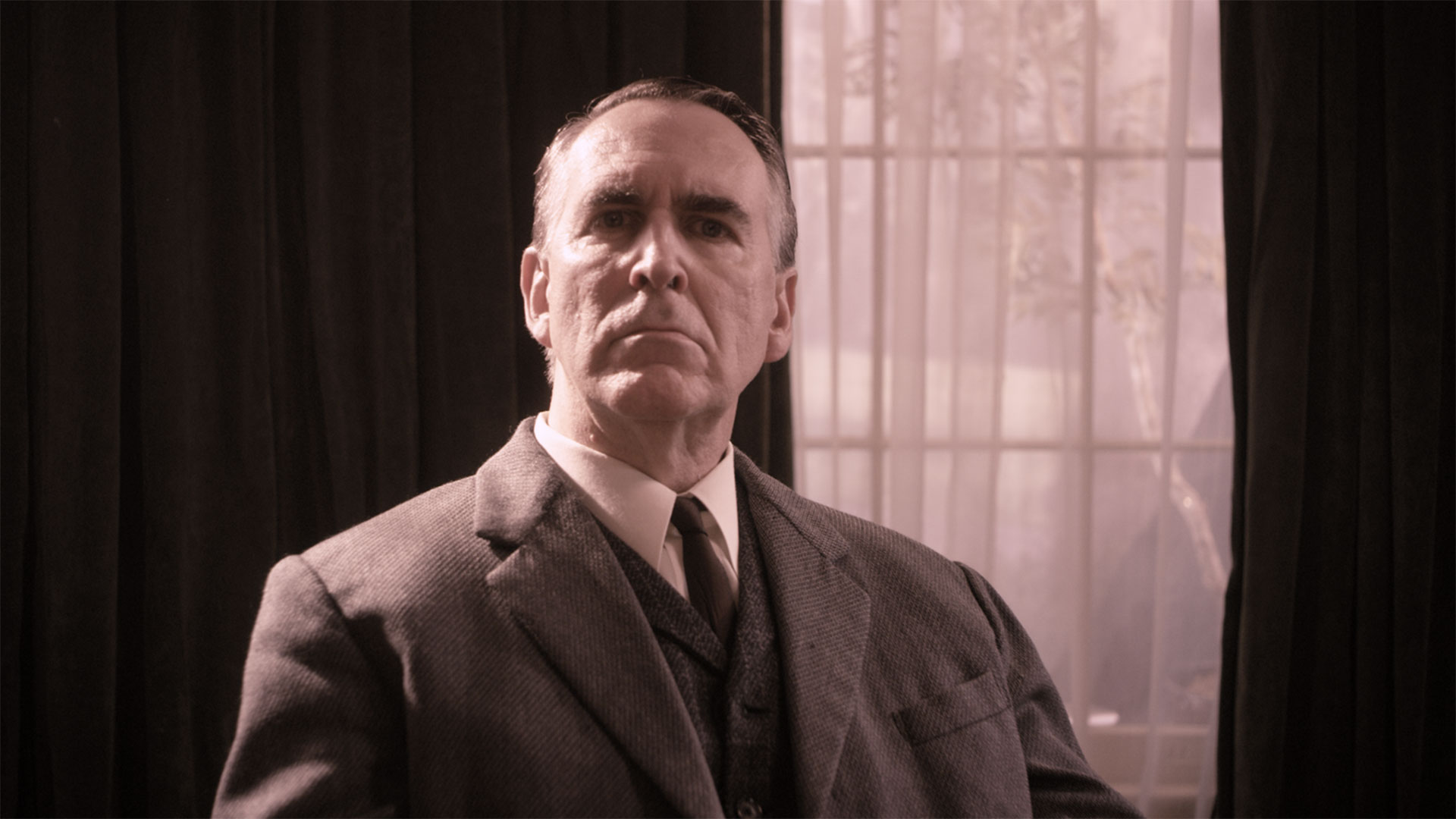
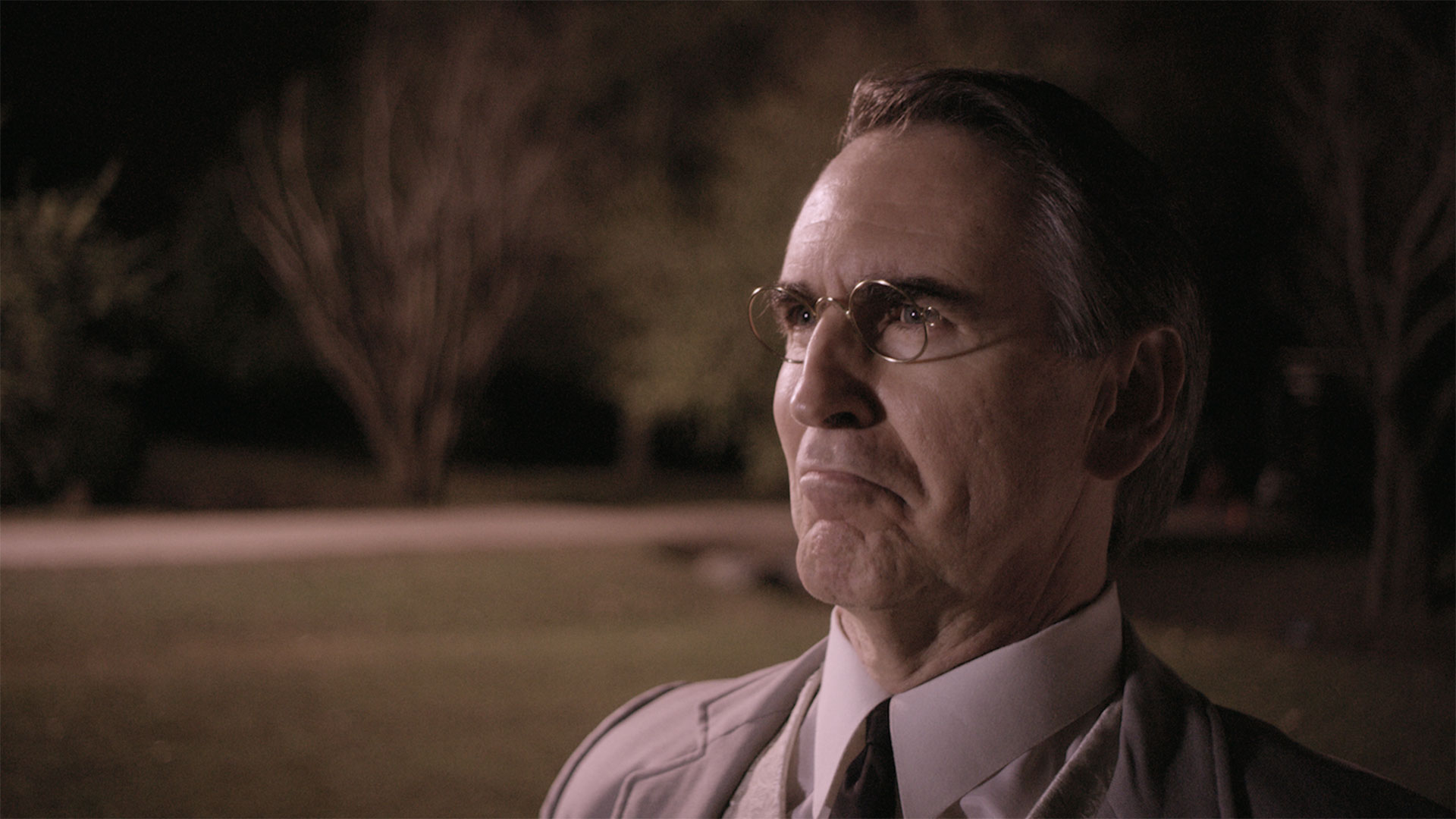
"It is like writing history with lightning, and my only regret is that it is all so terribly true."
"The white men of the South were aroused by the mere instinct of self-preservation to rid themselves, by fair means or foul, of the intolerable burden of governments sustained by the votes of ignorant negroes and conducted in the interest of adventurers….until at last there sprung into existence a great Kuklux Klan, a veritable empire of the South, to protect the Southern country."
"Segregation is not a humiliation but a benefit, and ought to be so regarded by you gentlemen. If your organization goes out and tells the colored people of the country that it is a humiliation, they will so regard it, but if you do not tell them so, and regard it rather as a benefit, they will regard it the same. The only harm that will come will be if you cause them to think it is a humiliation... If this organization is ever to have another hearing before me it must have another spokesman. Your manner offends me..."—Woodrow Wilson to Monroe Trotter, 1914
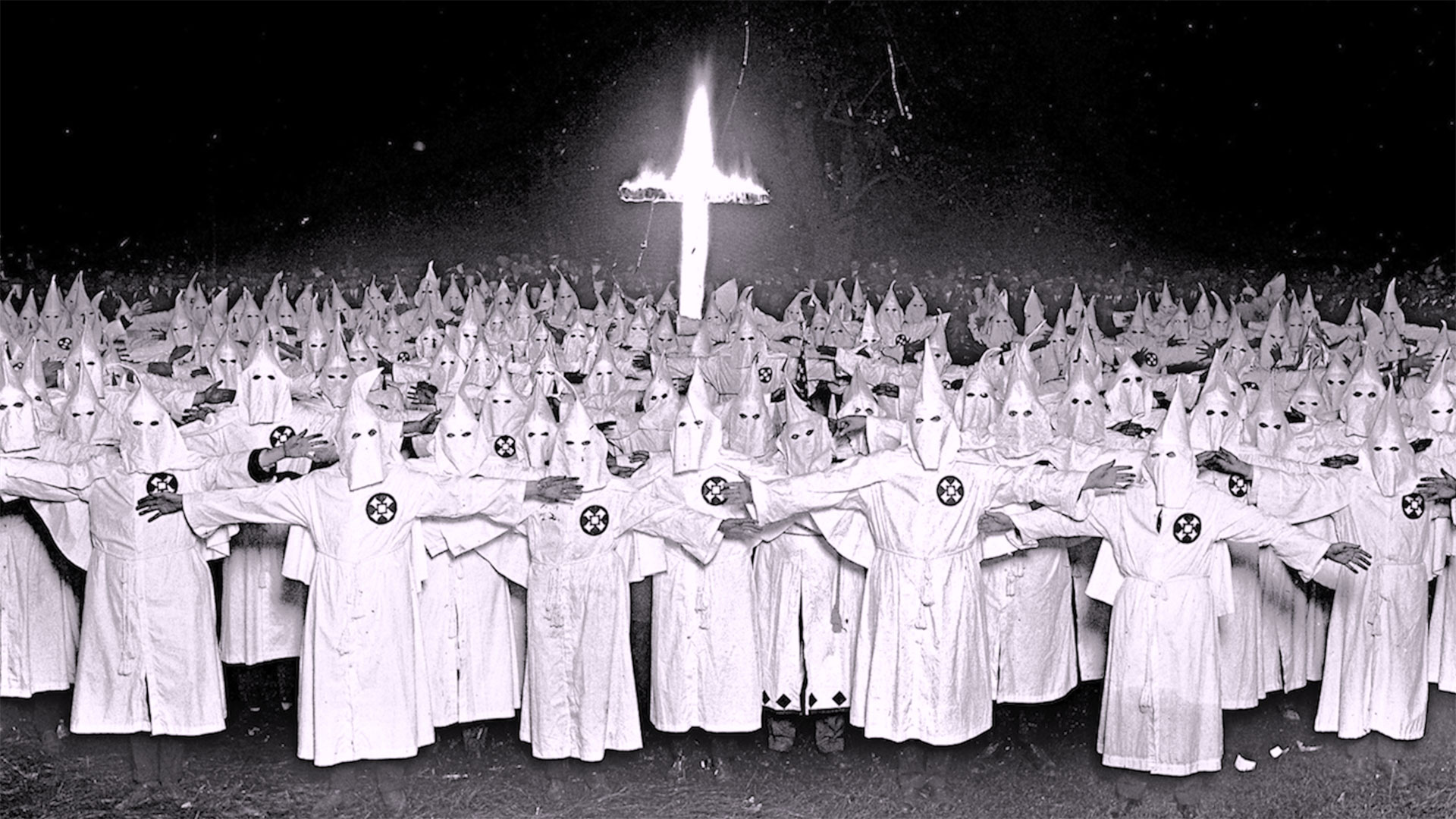
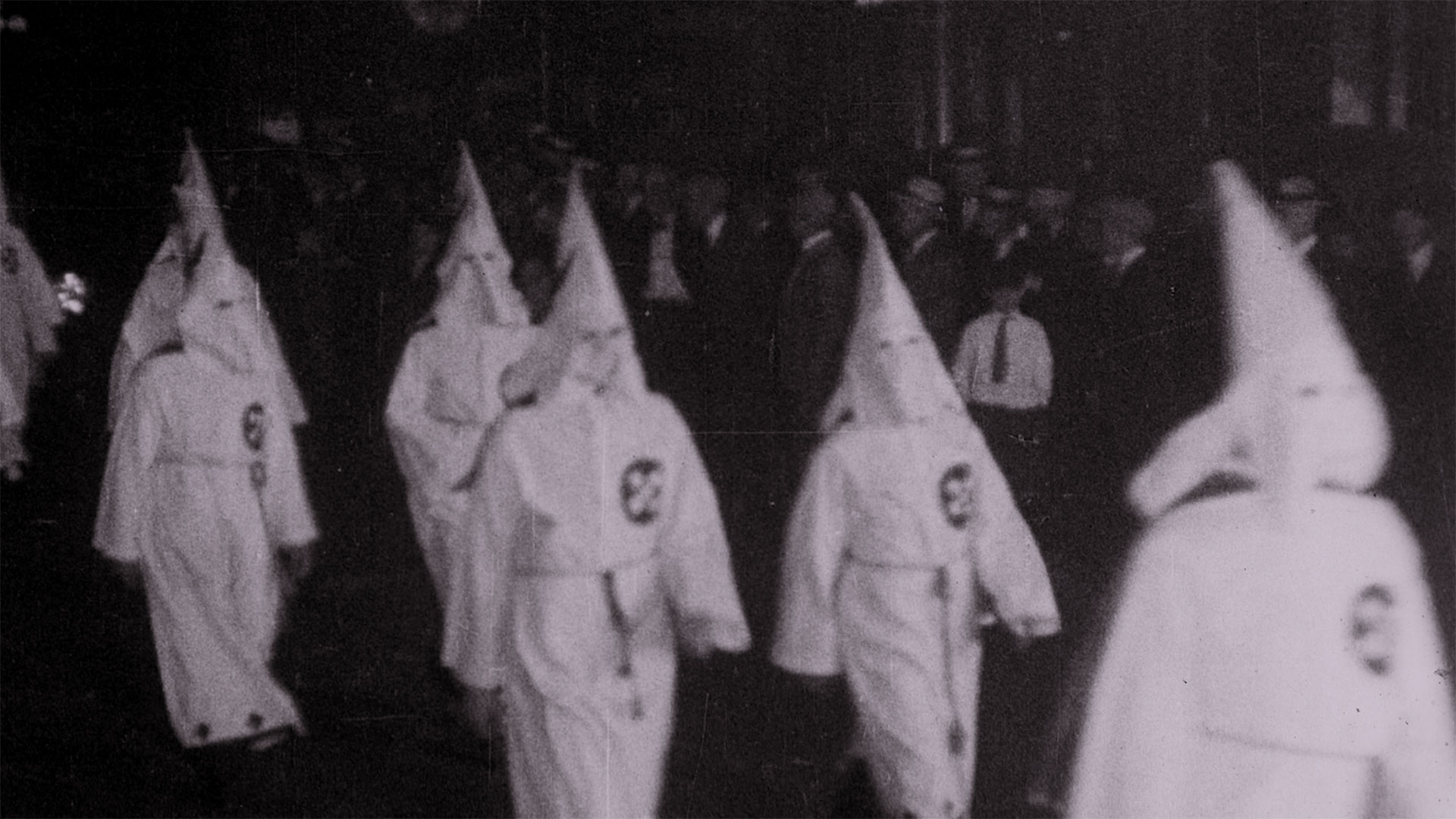
"The Democratic Party was an uneasy coalition of diverse elements: Northerners and Southerners, Westerners and Easterners, Catholics and Jews and Protestants, conservative landowners and agrarian radicals, progressives and big city machines, urban cosmopolitans and small-town traditionalists. On one side were defenders of the Ku Klux Klan, prohibition, and fundamentalism….The Northeasterners wanted an explicit condemnation of the Ku Klux Klans. The final vote was 546.15 for the Klan, 542.85 against it….Newspapers called the convention a 'Klanbake,' as pro-Klan and anti-Klan delegates wrangled bitterly over the party platform."


"One of the most heinous of these policies was introduced by the creation of the Federal Housing Administration in 1934, and lasted until 1968. Otherwise celebrated for making homeownership accessible to white people by guaranteeing their loans, the FHA explicitly refused to back loans to black people or even other people who lived near black people. As TNC puts it, 'Redlining destroyed the possibility of investment wherever black people lived.'"

"Reminiscent of Fascism is the principle that the state no longer leaves the economy to its own devices.… Without question, the mood accompanying this sea change resembles that of Fascism."
"'Roosevelt's adoption of National Socialist strains of thought in his economic and social policies' and 'the development toward an authoritarian state' based on the 'demand that collective good be put before individual self-interest.'"
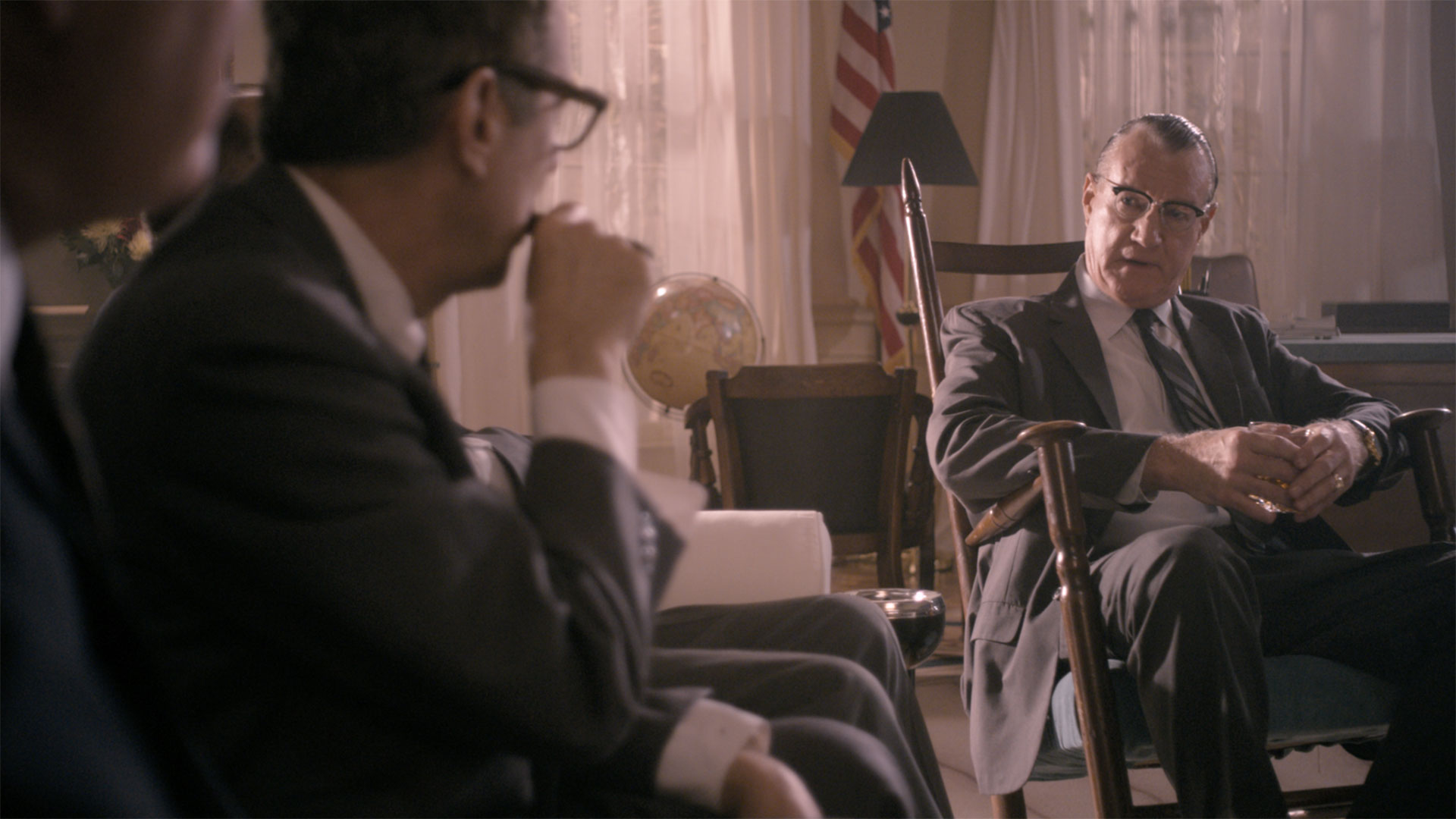
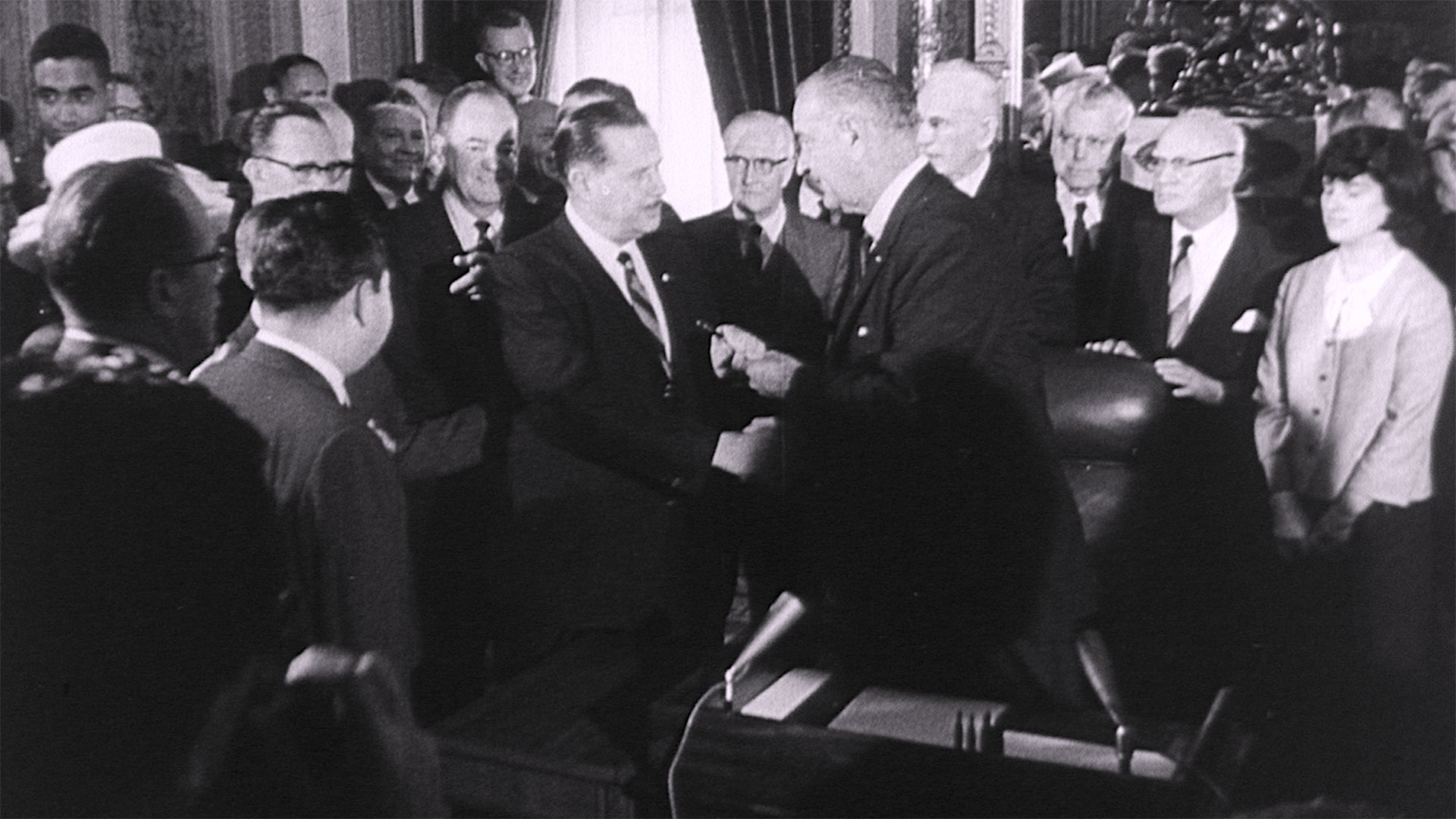
"These Negroes, they're getting pretty uppity these days and that's a problem for us since they've got something now they never had before, the political pull to back up their uppityness. Now we've got to do something about this, we've got to give them a little something, just enough to quiet them down, not enough to make a difference. For if we don't move at all, then their allies will line up against us and there'll be no way of stopping them, we'll lose the filibuster and there'll be no way of putting a brake on all sorts of wild legislation. It'll be Reconstruction all over again."
"I'll have them niggers voting Democratic for two hundred years."
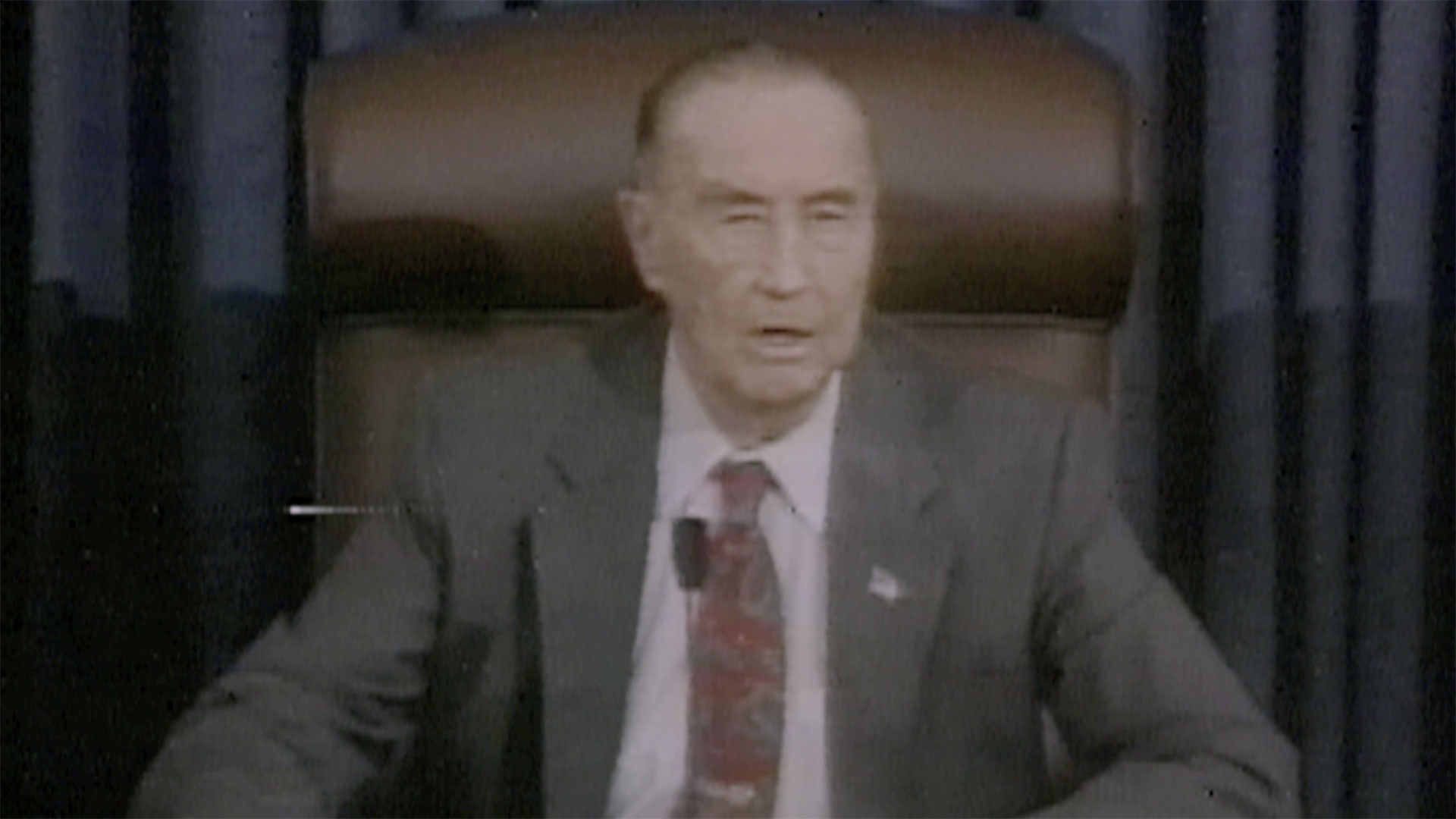
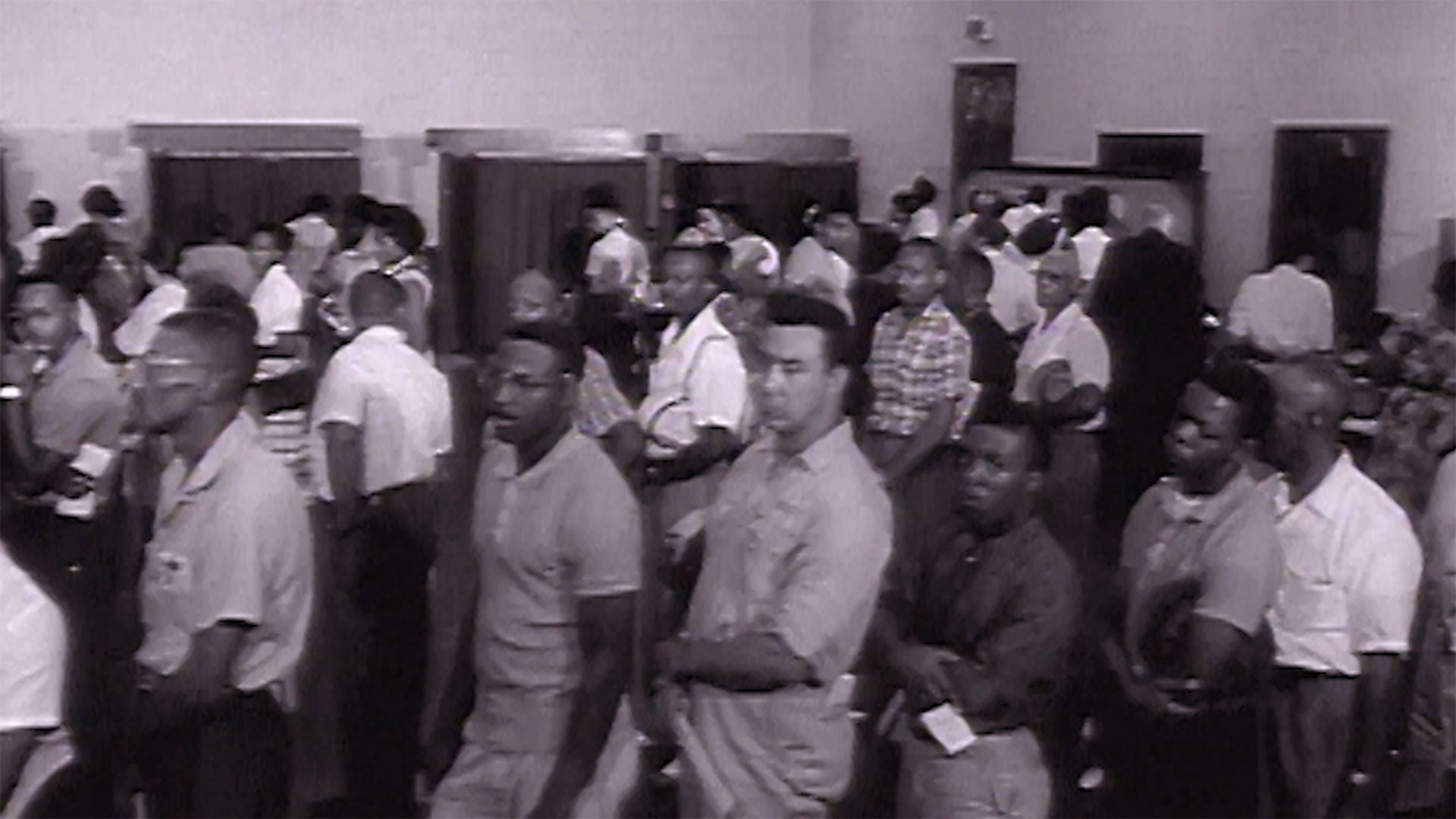
"Additionally, black voters nationwide realigned their party affiliation because of the growing perception that the interests of the black community were intertwined with local Democratic organizations….While New Deal programs failed to extend as much economic relief to Black Americans as to whites, the tangible assistance they provided conferred a sense that the system was at least addressing a few issues that were important to African Americans."
In 1936, black party affiliation was 44% Democratic, 37% Republican. But blacks voted 71% Democratic and 28% Republican

The very basis of the Southern economy was to change profoundly. At the beginning of World War II, roughly 40 percent of the South was still employed in agriculture, a share twice that of the rest of the nation. By 1990, that figure was down to 1 percent, a smaller agricultural sector than the non-South. In its place, a modern occupational distribution inevitably emerged. The agricultural economy, and its agrarian society, were gone. An industrial, and then within short order a post-industrial, economy and society had appeared
A politics of economic interest had evidently arrived. The wealthiest tercile was now most likely to vote Republican, the poorest tercile least likely—in a turn that was never in any way threatened thereafter. And while the move from the 1950s to the 1960s was the strongest overall shift, all subsequent decadal changes were to move further in the same direction.

Albert Watson, Andy Ireland, Billy Tauzin, Bob Stump, David Duke, Greg Laughlin, James W. Grant, Jimmy Hayes, John Jarman, Michael Parker, Nathan Deal, Phil Gramm, Richard Shelby, and Strom Thurmond.
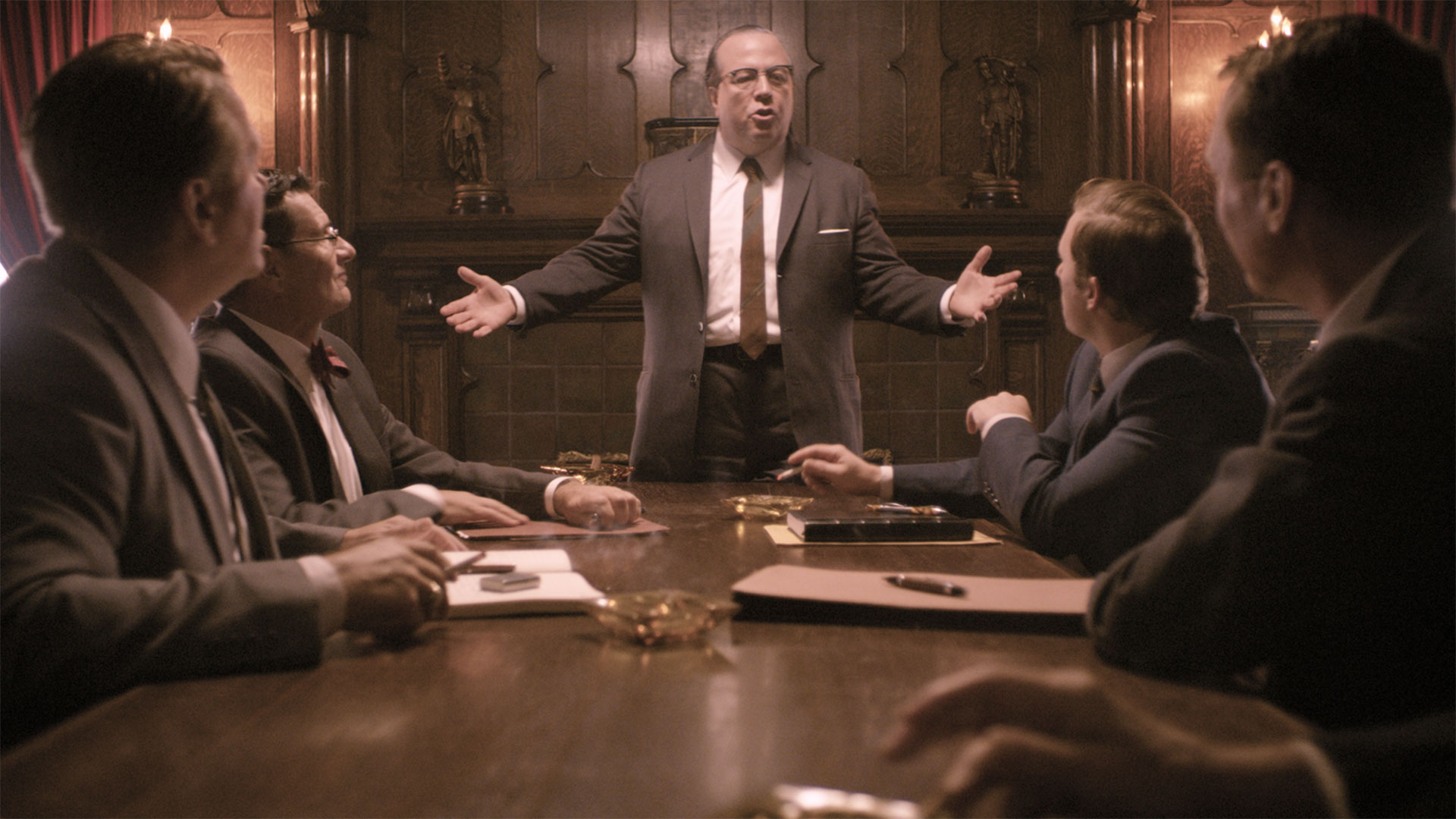

The Great Migration, or the relocation of more than 6 million African Americans from the rural South to the cities of the North, Midwest and West from 1916 to 1970, had a huge impact on urban life in the United States. Driven from their homes by unsatisfactory economic opportunities and harsh segregationist laws, many blacks headed north, where they took advantage of the need for industrial workers…As Chicago, New York and other cities saw their black populations expand exponentially, migrants were forced to deal with poor working conditions and competition for living space, as well as widespread racism and prejudice.
"Seemed like we were second class citizens. 'Plantation politics' the man with the newspaper said. That's just what it was too! The plantation, the blacks have the worst jobs, the worst housing, police brutality rampant; but when the so-called black committee man come around election time, we'd all line up and vote the straight Democratic ticket. Sell our souls for a Christmas turkey. White folks spit in our faces, and we reward them with the vote."
"The rapid growth of American cities in the 19th century, a result of both immigration and migration from rural areas, created huge problems for city governments, which were often poorly structured and unable to provide services. In those conditions, political machines…were able to build a loyal voter following, especially among immigrant groups, by performing such favours as providing jobs or housing….in exchange for loyalty at the polls."
"…the primary goal of a political machine is keeping itself in power rather than providing good government, machines have been responsible for restructuring city governments to centralize authority…"
In 1950 he was elected Cook County clerk and in 1953 chairman of the Cook County Democratic Party. In 1955 Daley ousted incumbent mayor Martin Kennelly in a bitterly contested Democratic primary, then beat Republican Robert Merriam in the general election. He secured reelection five times, the last in 1975.
Daley enjoyed little success mitigating the escalating racial tensions and aligned himself with conservative whites against civil rights groups. He resisted residential desegregation, refused to implement affirmative action procedures in the city's police department, defended the public schools' racially exclusionary policies, and used urban renewal funds to erect massive public housing projects that kept black Chicagoans within existing ghettos.

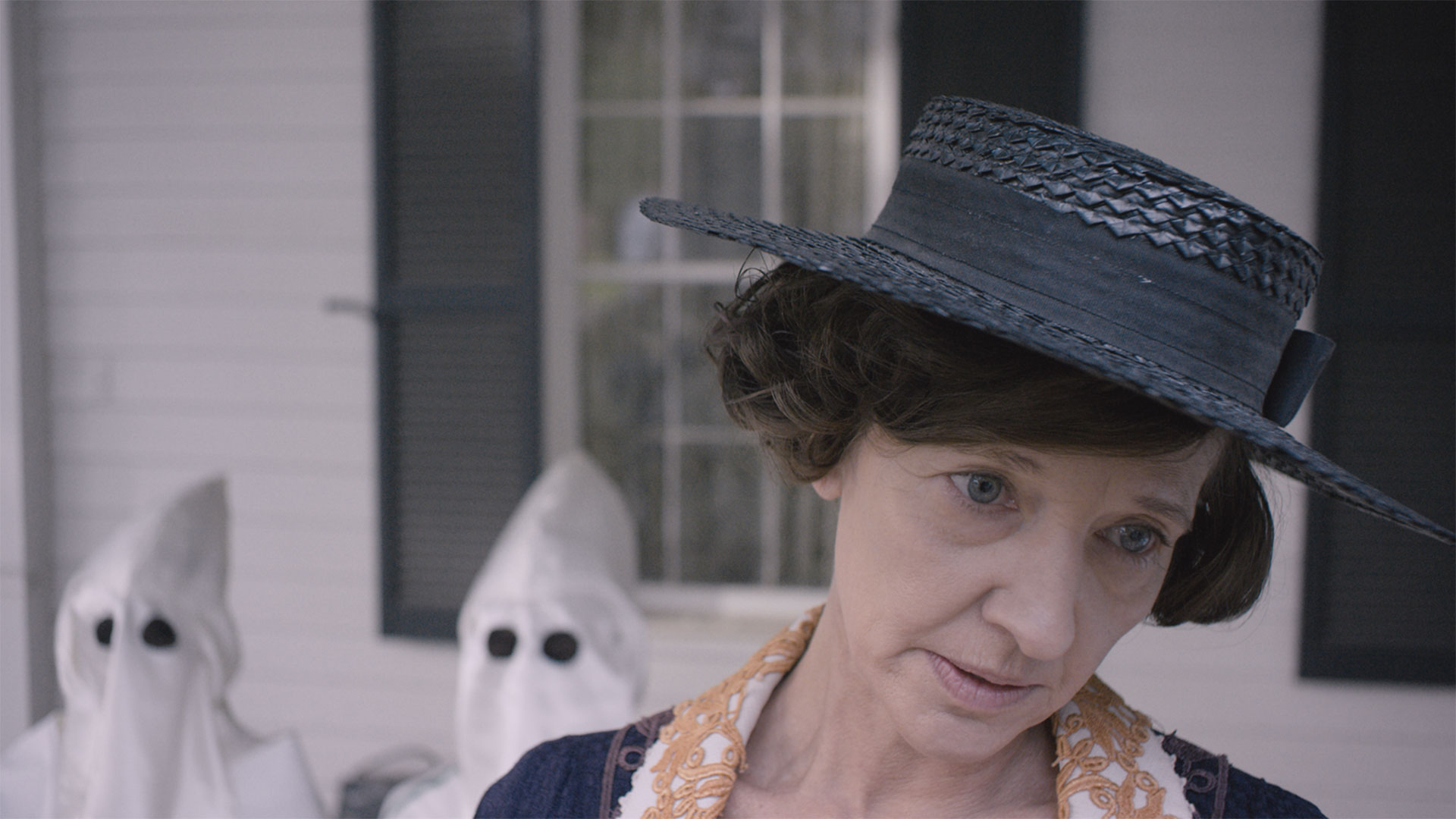
"Birth control is not contraception indiscriminately and thoughtlessly practiced. It means the release and cultivation of the better racial elements in our society, and the gradual suppression, elimination and eventual extirpation of defective stocks—those human weeds which threaten the blooming of the finest flowers of American civilization."
"Many, perhaps, will think it idle to go farther in demonstrating the immorality of large families, but since there is still an abundance of proof at hand, it may be offered for the sake of those who find difficulty in adjusting old-fashioned ideas to the facts. The most merciful thing that the large family does to one of its infant members is to kill it."
"Always to me any aroused group was a good group…and therefore I accepted an invitation to talk to the women's branch of the Ku Klux Klan at Silver Lake, New Jersey, one of the weirdest experiences I had in lecturing."
"We do not want word to go out that we want to exterminate the Negro population and the minister is the man who can straighten out that idea if it ever occurs to any of their more rebellious members."
"I admire Margaret Sanger enormously, her courage, her tenacity, her vision. I am really in awe of her, there are a lot of lessons we can learn from her life."
"And I think it is unfortunate that Planned Parenthood has been the object of such a concerted attack for so many years."

"Three generations of imbeciles are enough."
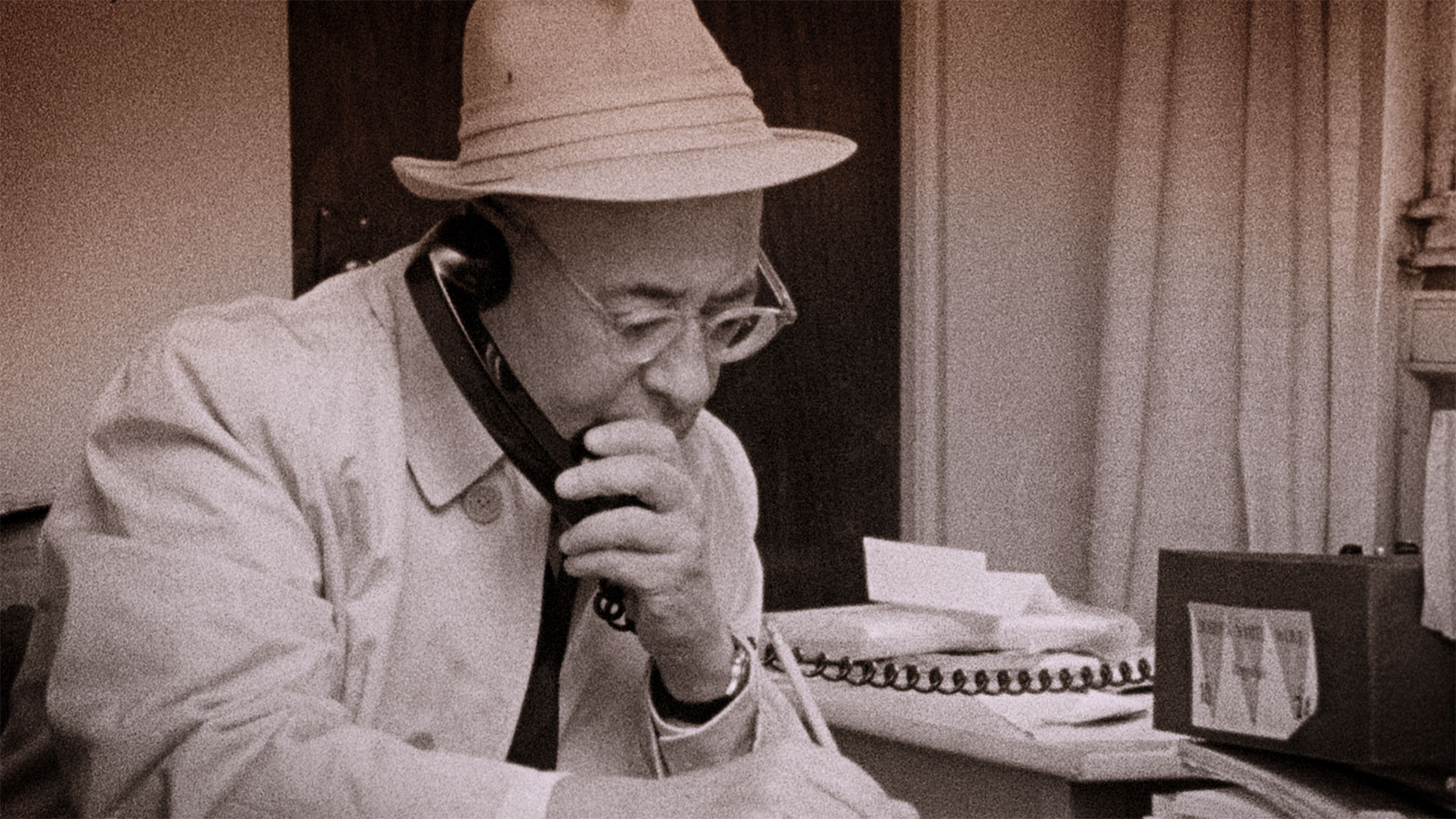
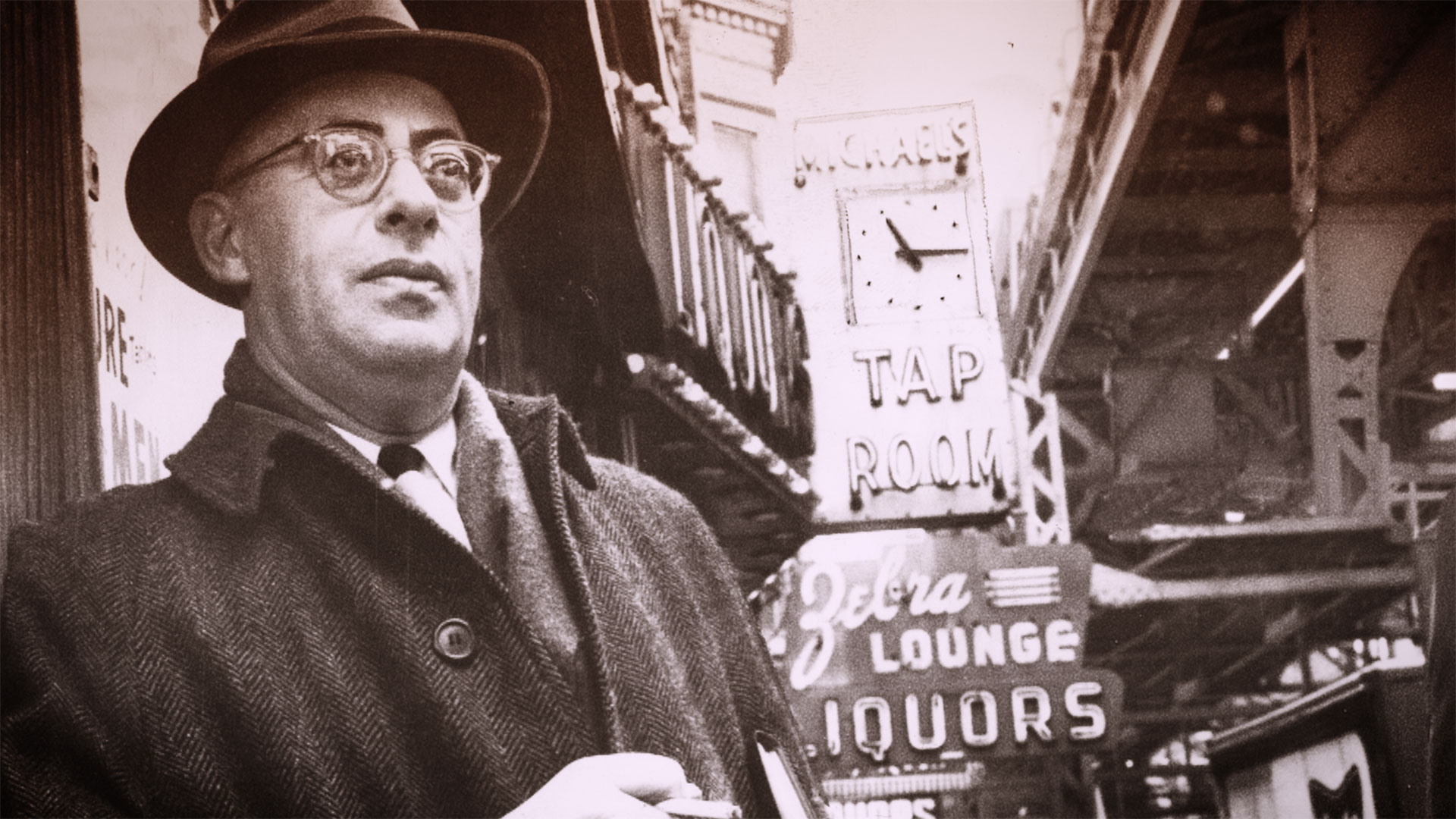
"…Alinsky was tough and brash, but basically motivated by a love of people and a passion for justice. He fought tirelessly against greedy corporations and insensitive government agencies to improve conditions in the urban ghettos, then became a labor organizer, then proved himself on the battleground of civil rights, and finally specialized as a community organizer…"
"In March 1972, just two months before he died, Alinsky gave a detailed, tell-all interview to Playboy magazine."
"I remember sitting in a crummy cafeteria one day and saying to myself: 'Here I am, a smart son of a bitch, I graduated cum laude and all that shit, but I can't make a living, I can't even feed myself. What happens now?' And then it came to me; that little light bulb lit up above my head."
"He introduced me to Frank Nitti, known as the Enforcer, Capone's number-two man, and actually in de facto control of the mob because of Al's income-tax rap. Nitti took me under his wing. I called him the Professor and I became his student."
"Once, when I was looking over their records, I noticed an item listing a $7500 payment for an out-of-town killer. I called Nitti over and I said, 'Look, Mr. Nitti, I don't understand this. You've got at least 20 killers on your payroll. Why waste that much money to bring somebody in from St. Louis?'"
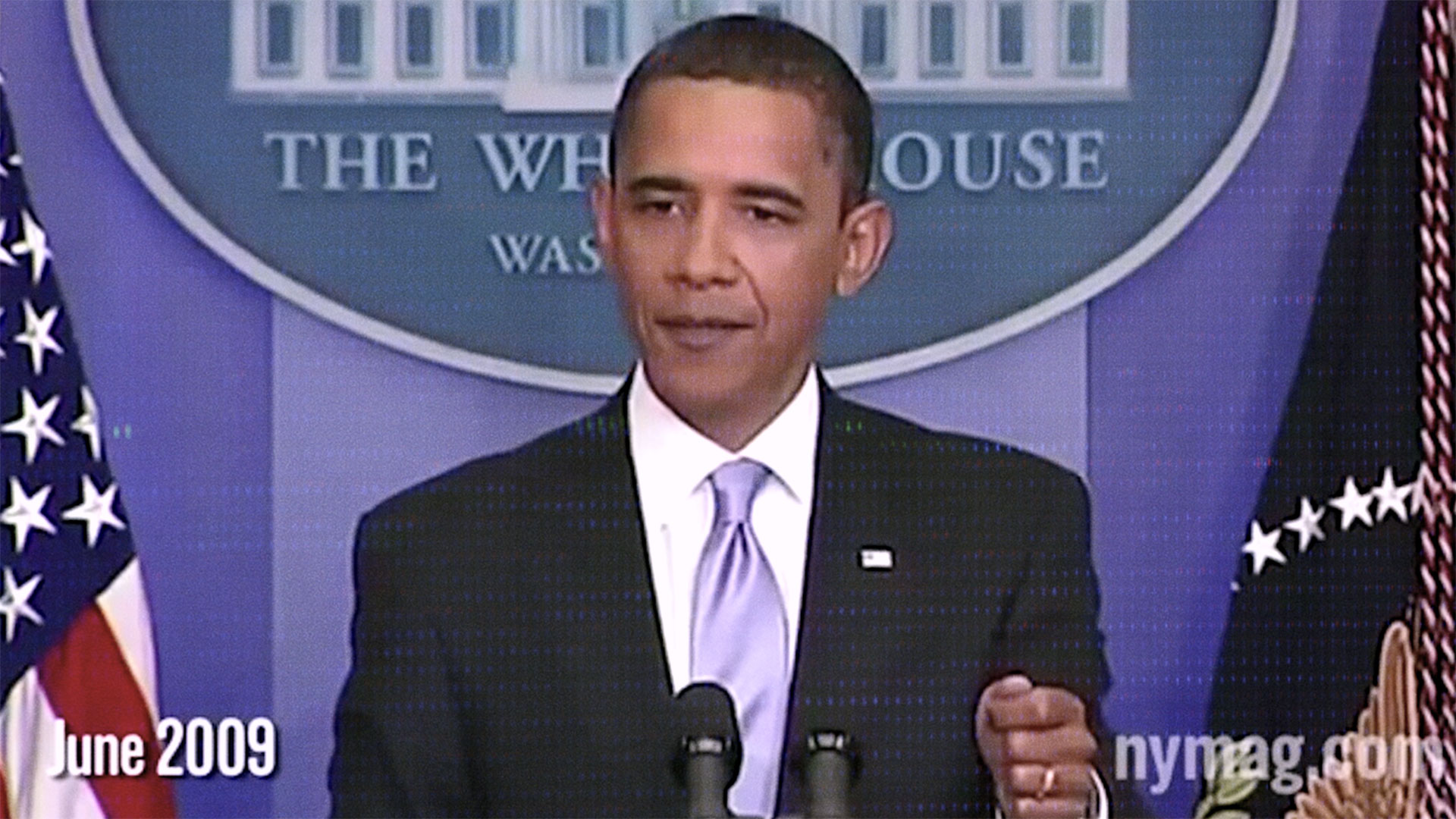

"I couldn't imagine worse news. I spent that night and all of the next day trying to suppress thoughts of the inevitable: the faces of my classmates when they heard about mud huts, all my lies exposed, the painful jokes afterward. Each time I remembered, my body squirmed as if it had received a jolt to the nerves. I was still trying to figure out how I'd explain myself when my father walked into our class the next day. Miss Hefty welcomed him eagerly, and as I took my seat I heard several children ask each other what was going on. I became more desperate when our math teacher, a big, no-nonsense Hawaiian named Mr. Eldredge, came into the room, followed by thirty confused children from his homeroom next door. "We have a special treat for you today," Miss Hefty began. "Barry Obama's father is here, and he's come all the way from Kenya, in Africa, to tell us about his country." The other kids looked at me as my father stood up, and I held my head stiffly, trying to focus on a vacant point on the blackboard behind him. He had been speaking for some time before I could finally bring myself back to the moment. He was leaning against Miss Hefty's thick oak desk and describing the deep gash in the earth where mankind had first appeared. He spoke of the wild animals that still roamed the plains, the tribes that still required a young boy to kill a lion to prove his manhood. He spoke of the customs of the Luo, how elders received the utmost respect and made laws for all to follow under great-trunked trees. And he told us of Kenya's struggle to be free, how the British had wanted to stay and unjustly rule the people, just as they had in America; how many had been enslaved only because of the color of their skin, just as they had in America; but that Kenyans, like all of us in the room, longed to be free and develop themselves through hard work and sacrifice. When he finished, Miss Hefty was absolutely beaming with pride. All my classmates applauded heartily, and a few struck up the courage to ask questions, each of which my father appeared to consider carefully before answering. The bell rang for lunch, and Mr. Eldredge came up to me."

"If you like your healthcare plan…"
"reducing premiums…"


"…survived law school, slightly bruised, with my belief in and zest for organizing intact."
"When is that new book [Rules for Radicals] coming out—or has it come and I somehow missed the fulfillment of Revelation?"
"I have just had my one-thousandth conversation about Reveille [for Radicals] and need some new material to throw at people."
"The more I've seen of places like Yale Law School and the people who haunt them, the more convinced I am that we have the serious business and joy of much work ahead—if the commitment to a free and open society is ever going to mean more than eloquence and frustration."
"Much of what Alinsky professes does not sound 'radical.' His are the words used in our schools and churches, by our parents and their friends, by our peers. The difference is that Alinsky really believes in them and recognizes the necessity of changing the present structures of our lives in order to realize them."
"One of the primary problems of the Alinsky model is that the removal of Alinsky dramatically alters its composition. Alinsky is a born organizer who is not easily duplicated, but, in addition to his skill, he is a man of exceptional charm."
"In spite of his being featured in the Sunday New York Times, and living a comfortable, expenses-paid life, he considers himself a revolutionary. In a very important way he is. If the ideals Alinsky espouses were actualized, the result would be social revolution. Ironically, this is not a disjunctive projection if considered in the tradition of Western democratic theory. In the first chapter it was pointed out that Alinsky is regarded by many as the proponent of a dangerous socio/political philosophy. As such, he has been feared—just as Eugene Debs or Walt Whitman or Martin Luther King has been feared, because each embraced the most radical of political faiths—democracy."
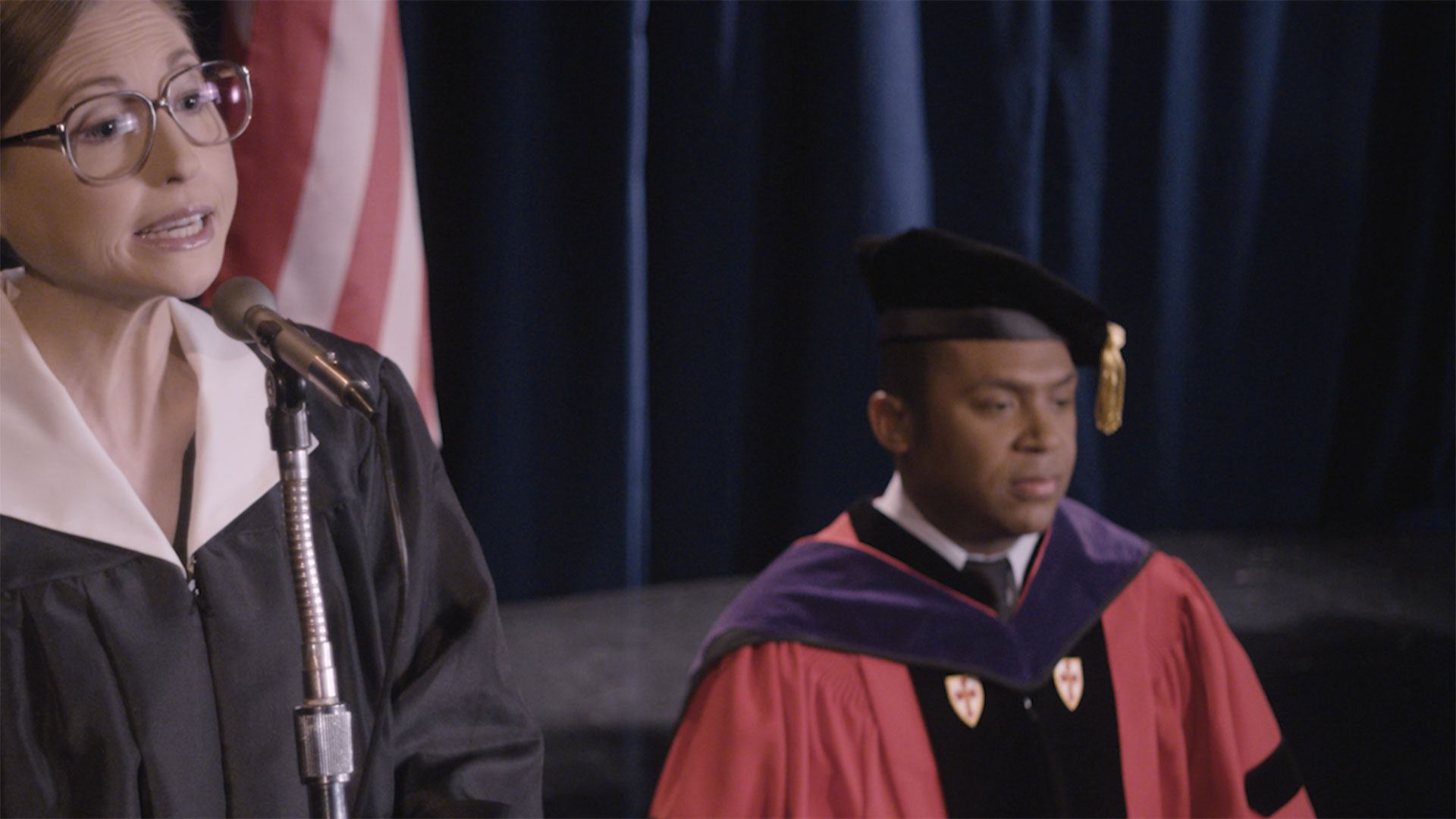
"I find myself reacting just briefly to some of the things that Senator Brooke said….Part of the problem with just empathy with professed goals is that empathy doesn't do us anything. We've had lots of empathy; we've had lots of sympathy, but we feel that for too long our leaders have viewed politics as the art of the possible. And the challenge now is to practice politics as the art of making what appears to be impossible possible….The complexities are not lost in our analyses, but perhaps they're just put into what we consider a more human and eventually a more progressive perspective."

"I did not have sexual relations with that women…"
"This is not an arrangement, you're looking at two people who love each other…"
"The great story here, for anyone to find it, write it about it, and explain it is this vast right-wing conspiracy that has been conspiring against my husband since the day he announced for president."
Juanita Broaddrick recounting Bill Clinton, then Attorney General, raping her in 1978
Paula Jones interview
Gennifer Flowers press conference
Kathleen Willey

"She took a hold of my hand and squeezed it and said, 'Do you understand everything you do for Bill?' And I just almost fainted. She looked straight at me, her smile faded, she looked very menacing. I was really frightened…"
"Terrible case….It was a fascinating case. It was a really interesting case. This guy was accused of raping a 12 year old….But you know what was sad about it was that the prosecutors had evidence, among which was his underwear."
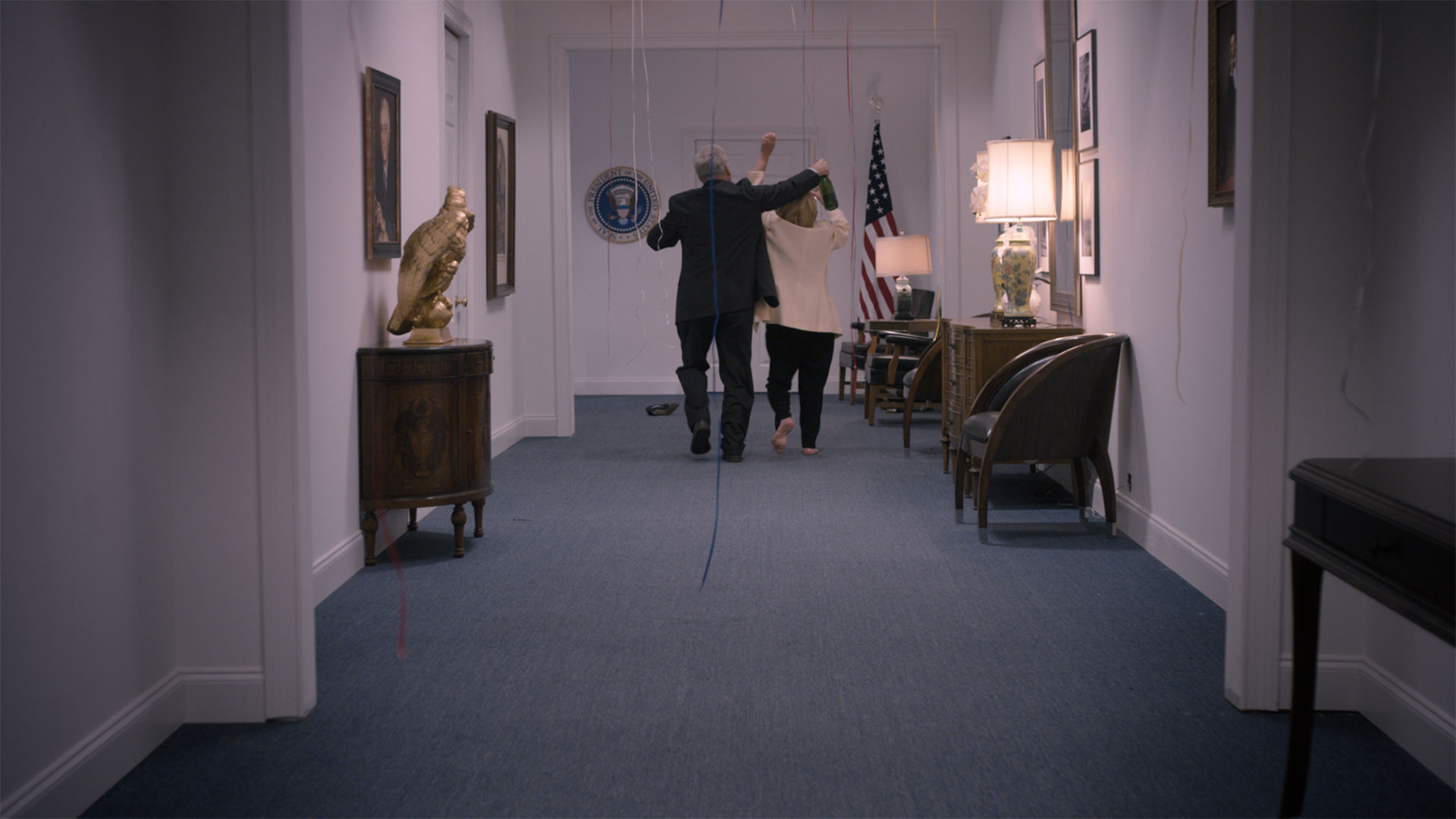
"President Clinton and his wife started shipping White House furniture to the Clintons' newly purchased home in New York more than a year ago, despite questions at the time by the White House chief usher about whether they were entitled to remove the items."
"The White House said today that in 1978 Hillary Rodham Clinton invested $1,000 in commodities futures and that the investment grew in 10 months of trading in the notoriously volatile market into a gain of nearly $100,000."
"There is no connection, she has said, between anything she did and the criminal cases being pursued by the Whitewater independent counsel, including the trial that ended last week with the fraud convictions of the couple who brought the Clintons into the original Whitewater land deal and the man who succeeded Bill Clinton as governor of Arkansas."
Timeline
"A memorandum by a former Presidential aide depicts Hillary Rodham Clinton as the central figure in the 1993 travel office dismissals, a politically damaging episode that the aide said had resulted from a climate of fear in which officials did not dare question Mrs. Clinton's wishes."
President Bill Clinton's guests in the Lincoln Bedroom gave a total of at least $5.4 million to the Democratic National Committee during 1995 and 1996, according to a study for CNN by the Campaign Study Group.
Bill and Hillary Clinton's scandal-plagued two terms in the White House ended 15 years ago today with a blockbuster presidential disgrace that even the former president regretted for damaging his reputation: the pardon of international fugitive donor Marc Rich.
"What difference at this point, does it make?"

"A similar situation had unfolded in Kazakhstan in 2005. Giustra and Clinton jetted in to dine with the country's authoritarian president, Nursultan Nazarbayev. Days later, Giustra's mining company signed an agreement giving it stakes in three state-run uranium mines in addition to those it controlled in the U.S. After a $3.5 billion merger, the company was eventually acquired by the Russian atomic energy agency, Rosatom. Because uranium is a strategic asset, the sale required (and received) approval from multiple U.S. agencies, including the Department of State, then run by Hillary Clinton."
Fifty miles away on Haiti's north coast, Anelle Germinal exemplifies another reality of the Clintons' work here: disappointment. The 33-year-old mother of four has been standing in the baking sun every day for months waiting for work in the struggling Caracol Industrial Park, which the Clintons have touted as a model that would change the economy of this impoverished country.
The Washington Post reported last month that the foundation's donors include seven foreign governments that contributed millions during Hillary Clinton's tenure as secretary of state. Among those donations was a $500,000 contribution from the Algerian government for earthquake relief in Haiti that the foundation has acknowledged violated the terms of an ethics agreement with the Obama administration.
Nevertheless, the Clintons are facing a growing backlash that too little has been accomplished in the past five years and that some of the most high-profile projects they have backed—including a just-opened Marriott, another luxury hotel and the industrial park—have helped foreign investors and Haiti's wealthy elites more than its poor.
Controversy surrounding the Clintons only deepened with the recent revelation, contained in an upcoming book by Peter Schweizer, that Tony Rodham—Hillary Clinton's younger brother—serves on the advisory board of a U.S.-based company that in 2012 won one of Haiti's first two gold-mining permits in 50 years. After objection from the Haitian Senate, the permits have been placed on hold.